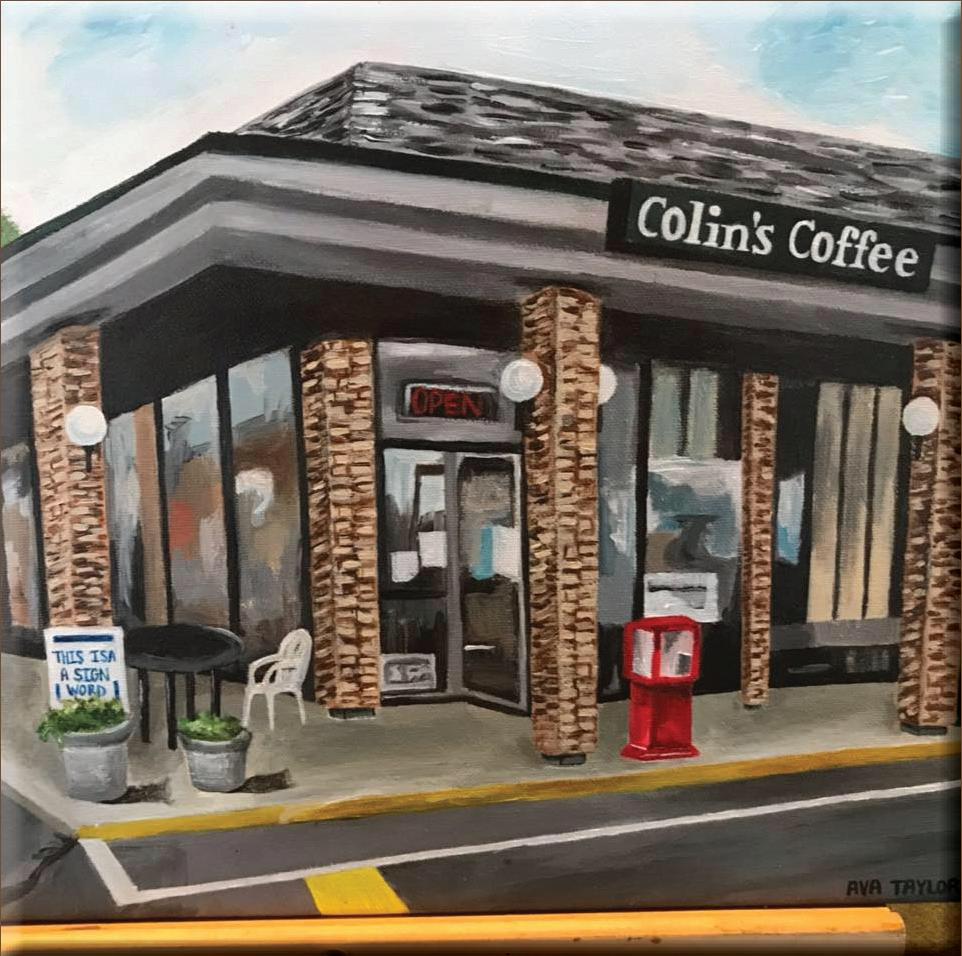ARLINGTONIAN



Police say they’ve solved a 1980 murder case that rocked the community. But some harbor doubts about their conclusion.
READ NOW ON PAGE 16
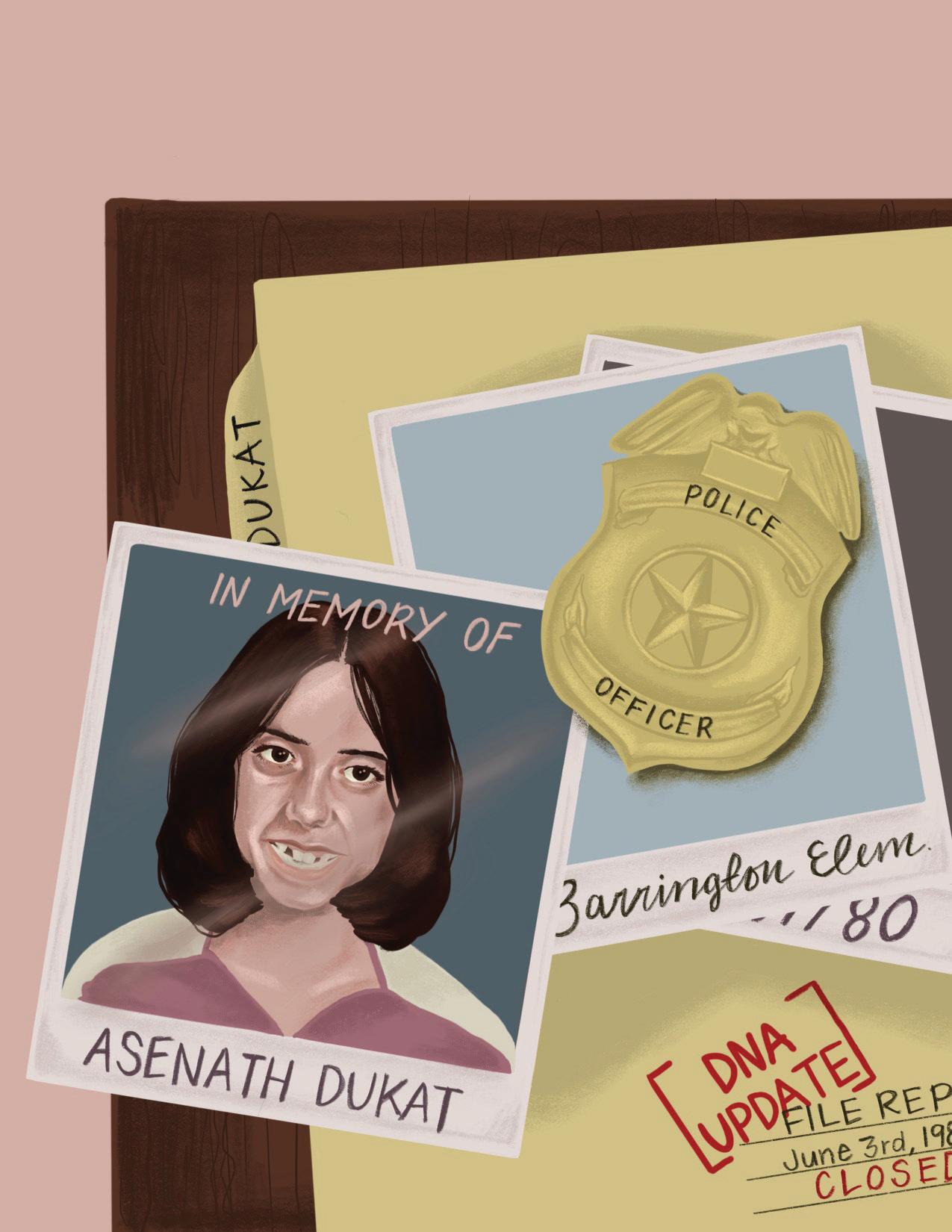
Boxes o’ Books
Senior Eagle Scout shares the joy of reading with his community.
Quizlet wants its users to pay up. Now, students and teachers are looking for new ways to study.
Serena’s Final Match
Serena Williams’s tennis career comes to a close, but her legacy lives on.
A Memory Reignited
Sixth-grade camp has returned with a few changes.
UAHS sophomore re ects on her successful gure skating career and looks to what’s next.
The Wright Way
An overview of UAHS student athlete Keelan Wright. UA SPEAKS
ON THE COVER 16 Case Closed?
Police say they’ve solved a 1980 murder case that rocked the community. But some harbor doubts about their conclusion.
OPINION 23 Is Kindness a Real Thing?
Columnist discusses her observations of kindness.
OPINION 24 To Protest or Not to Protest
Columnists debate the e ectiveness of protests.
Columnist shares her top four autumnal delights.
It’s Time for New New Democrats
Columnist argues for Democrats to emulate the New Democrats of the 1990s.
A Good Decision
Columnist reviews actor and singer Joe Keery’s new album “DECIDE.”
Columnist comments on the reality of being a senior.
Weenie Wonder
Critic does not nd the Weenies of Weenie Wonder very wonderful. STAFF EDITORIAL
Beyond the Name Tag
Being kind to others is something we all can do a little more.
Growing up, fall was always my favorite season. I relished the classic taste of newly in-season pumpkin pies. I eagerly anticipated the mid-50s weather, which as far as I was concerned was in the Goldilocks zone of temperatures. And I was immensely thankful to have a whole day during which it was, for once, socially acceptable to be scary.
But I think what really made fall my favorite season was not the pumpkin pastries or crisp weather that de ne this time of year, nor was it the enduring aesthetic appeal of Spooky Season. No, the real reason I fell for fall was the sense of togetherness that it brought out in myself and those around me. is was the time of year when towns held decoration contests, friends got lost in corn mazes, and neighborhood kids traded Halloween candy over warm apple cider. is was the season of community.
Yet this sense of community transcends any one season. With this second Arlingtonian issue of the 2022-23 school year, I encourage you to engage with the UAHS community, celebrating those around us and exploring new connections with our peers. For a sampling of what our classmates are up to, check out Adelaide Petras’s look at sophomore Cecilia Donohue’s ice skating career on page 10, or Gracie Helfrich’s pro le of cheerleader and Homecoming King Keelan Wright on page 12.
Belonging to a community can also mean serving that community. On page 4, Iris Mark discusses senior Michael Piccininni’s Eagle Scout project of installing Little Free Libraries at UAHS and Hastings Middle School. And in her op-ed on page 23, Greta Miller explores the topic of kindness within a community.
On page 16, read Emily Ayars’s and Adelaide Petras’s piece on the tragic 1980 murder of Barrington Elementary School student Asenath Dukat. Following this horri c event, the Upper Arlington community emerged united in their grief, determined in their search for answers, and resolved to prevent what had happened from happening ever again. Students, teachers, parents and neighbors — nobody people and somebody people — all came together to show the resilience of communities. Even today, e Long Walk Home is a group of anonymous volunteers that is dedicated to preserving the memory of Asenath. When we honor Asenath, we show that community means something.
www.arlingtonian.com
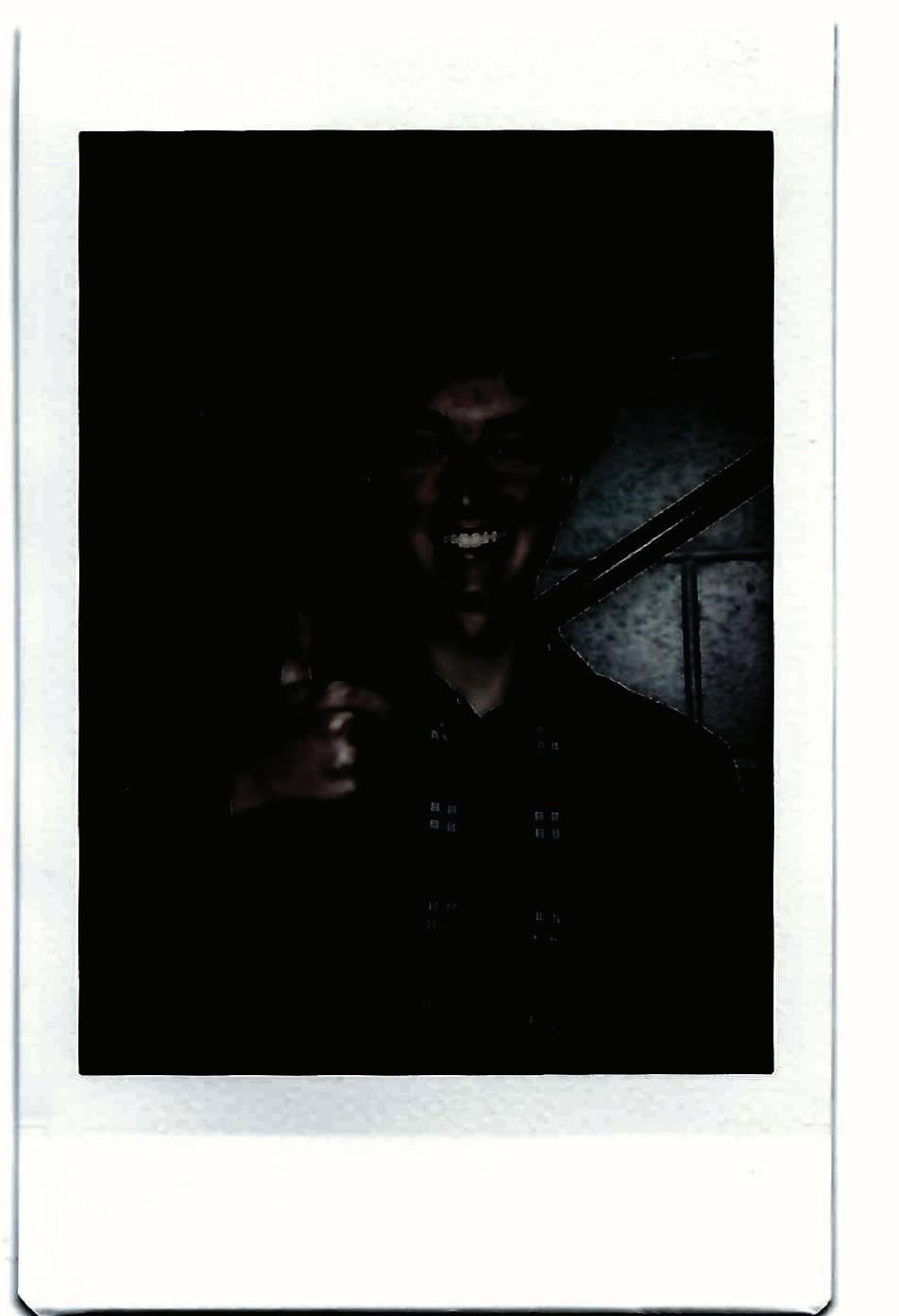
Twitter: @uaarlingtonian
Instagram: @uaarlingtonian
TikTok: @ua.arlingtonian Facebook: @arlingtonians



Arlingtonian is free to all UAHS students and sta thanks to contributions from generous readers and businesses. We do not receive district funding.
Arlingtonian accepts donations throughout the school year. To nd out more, visit arlingtonian.com/donate
Arlingtonian’s print issues and website include adverstisments from supporting businesses. To nd out more, email arlingtonian@uaschools.org.
Arlingtonian is a studentproduced newsmagazine published by Journalism III-Arlingtonian students at UAHS. e publication has been established as a public forum for student expression and for the discussion of issues of concern to its audience. It will not be reviewed or restrained by school o cials prior to publication or distribution.
Arlingtonian welcomes letters to the editor, guest columns and news releases from faculty, administrators, community residents, students and the general public. e Arlingtonian
editorial board reserves the right to withhold a letter or column and return it for more information if it determines the piece contains items of unprotected speech as de ned by this policy.
e Arlingtonian sta raises and pays all printing and production costs through advertising sales, donations and fundraisers.
e Editor in chief shall interpret and enforce this editorial policy.
To read our full editorial policy, visit our website at arlingtonian.com.
Books are powerful tools of escape; they can be a backdrop for the imagination, objects of informed discussion or sources of inspiration. Access to them can be just as impactful as learning to read, and sharing books with the community, especially to those who have limited opportunities, holds a tremendous amount of value.
is goal of spreading the joy of reading was at the center of senior Michael Piccininni’s Eagle Scout project, for which he built Little Free Libraries — public book cases that anyone can add a book to or take a book from
— at Hastings Middle School and UAHS.
Originally, Piccininni was inspired by a project he undertook in his sophomore English class, when he con ducted a book drive and donated the books that he col lected.
“I was building o my earlier idea of my project in my sophomore year. [I] had a ton of success with that book drive — I [collected] over 500 books — so I knew that people who were willing to donate were out there,” he said. “I raised over 200 books this time, and I donated all the extra ones to the United Methodist Church free store on Parson’s Avenue in Columbus. [ ey] serve un derprivileged people in the community.”
Eagle Scout is the highest rank earned in the Scout ing program, and to earn it, one must demonstrate a high capacity for leadership skills. ese qualities along with a number of required merit badges, are all a part of the process.
“As I was developing my Eagle Scout project, I asked myself: ‘What’s something [that’s] really important to me and I can actually make an impact?’ Obviously there’s tons of these little libraries around UA; I’m pretty sure there’s one at every school now,” Piccininni said. “And so seeing those I just thought that that would be a great thing that I could do, was de nitely manageable and was something that could really make an impact.”
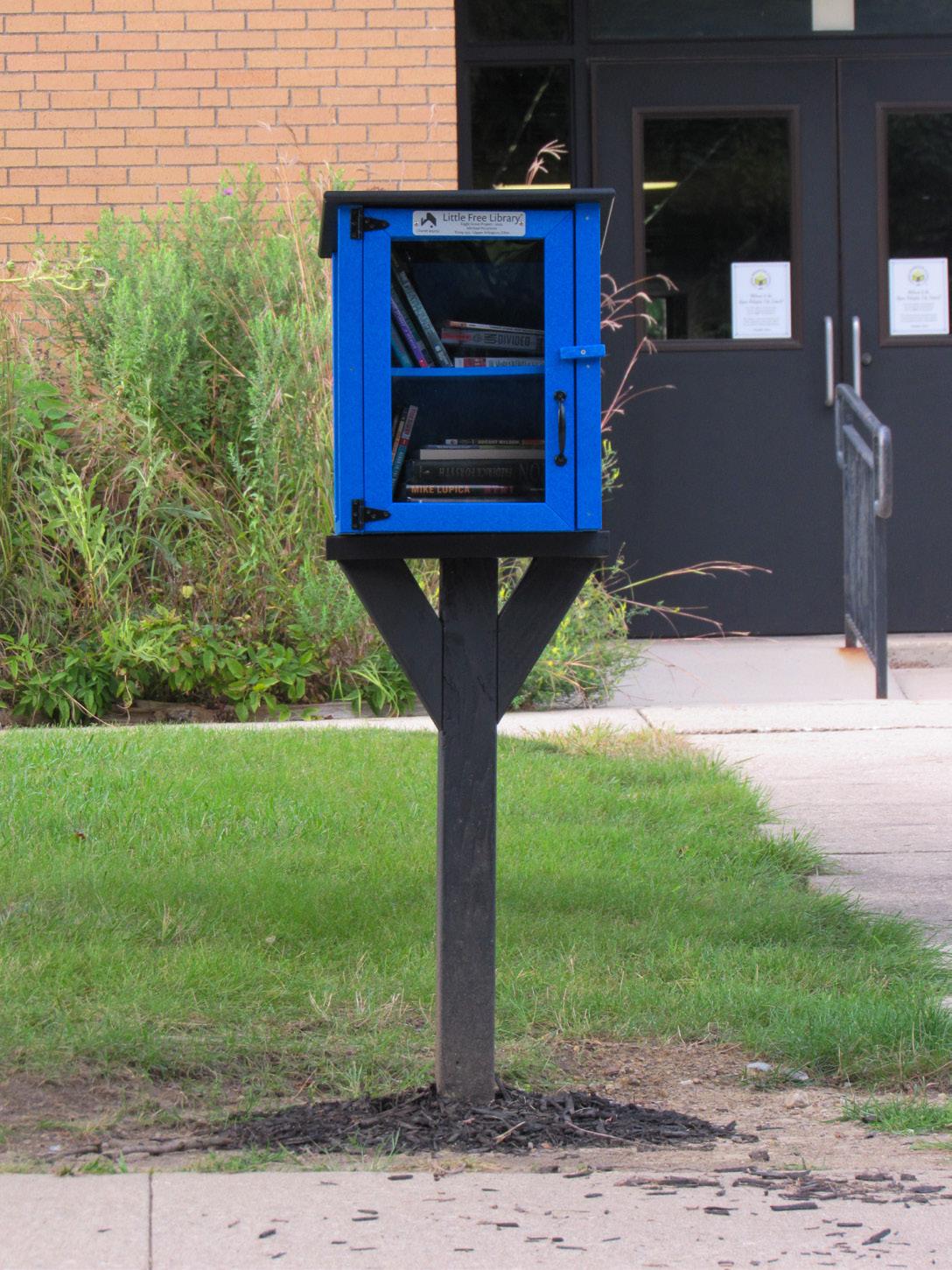
Piccininni’s Eagle Scout adviser, Laura Skoracki, commented on his leadership and perseverance through out the process.
“In completing his project, [it] required a total of 106.5 man hours involving 22 people. He had to learn to communicate his plan and give direction not only to peers but to adults that comprised nearly half of his workforce. As a leader he had to direct every detail in making the libraries and collecting the books,” Skoracki said in an email.
rough his hard work, Piccininni has created li braries that can make an impact, Skoracki said.
“ e best part about this project is not only the joy that it will bring to the community, but also the satis faction of all of those involved in making it possible,” she wrote. “[ ere] is a sense of pride in the community knowing that together we are doing something to make reading more accessible.”
A Little Free Library, built by senior Michael Piccininni for his Eagle Scout project, stands outside Hastings Middle School.Freshmen Isabella Bracco and Jaden Chin davong browse the offerings of the Little Free Library outside the high school. The library is the work of senior Michael Piccininni, who built the library for his Eagle Scout project.
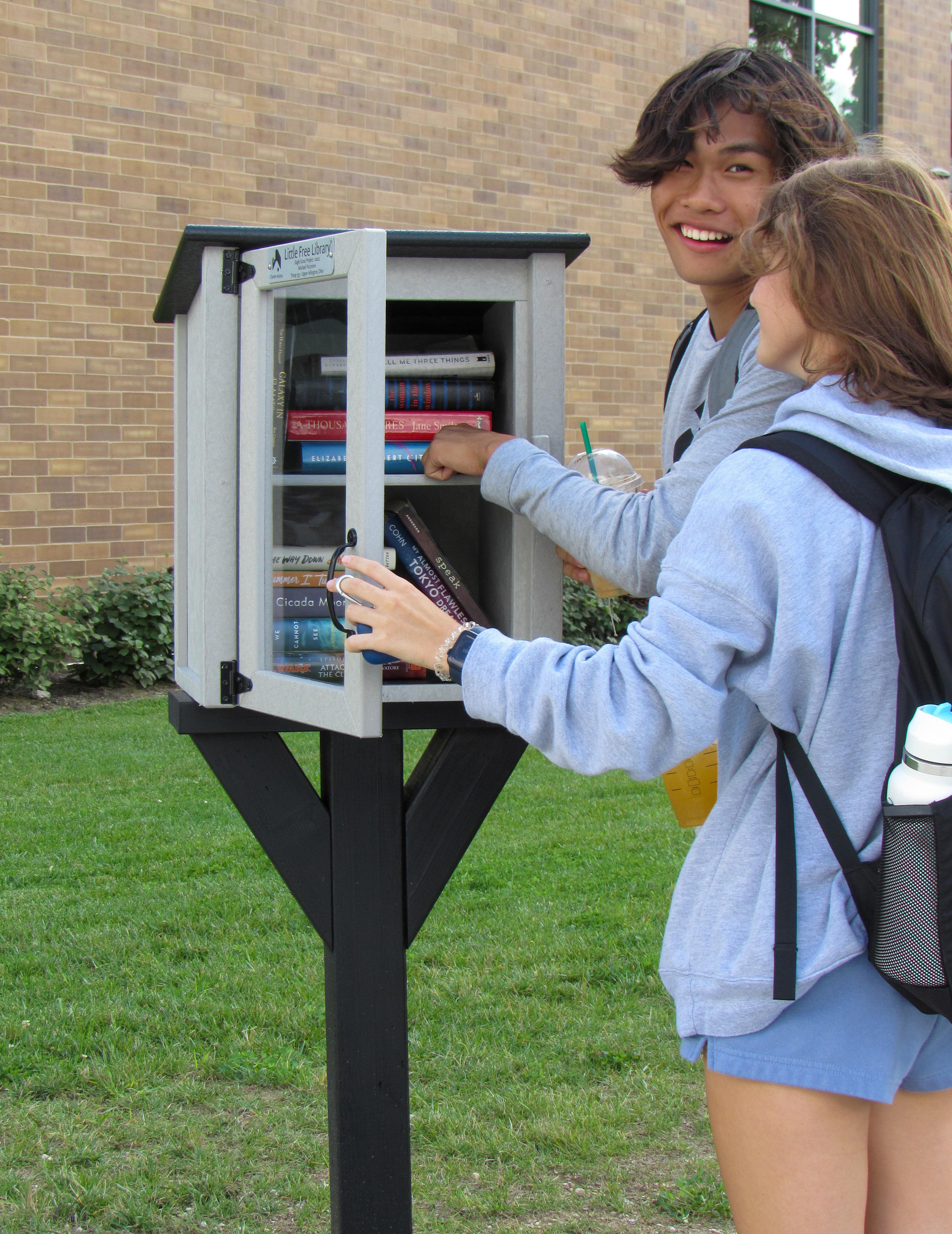 BY HAILEY HOFFMAN ’23
BY HAILEY HOFFMAN ’23
Quizlet has always been a popular study tool for students, with its easy to make ashcards, and features such as Learn, Write, Spell and Test. Students and teachers are able to make their own sets of ashcards, and share with classmates. In 2018, Quizlet added a Premium feature, allowing students to have access to textbooks and other resources that made ashcards easier to make and more accurate.
“Over the years I’ve utilized Quizlet and the Learn feature to help learn Spanish vocab, and study for quizzes,” senior Chloe Friedman said.
Recently, Quizlet has made more changes to its Premium content. Users can pay $7.99 for a monthly subscription, or $2.99 every month for a yearly subscription, totaling $35.99 for the entire year.

Some of Quizlet Premium’s features include being able to scan handwritten notes into premade ashcards, ad-free studying, textbook solutions and feedback on concepts. Students are also able to customize your sets with diagrams, add visual cues to help memorization and download sets for ofine studying.
Quizlet is a staple in many classes at UAHS, especially in foreign languages, as ashcards are extremely helpful when learning new vocabulary and grammar.
“My German teacher has Premium, so during her class we are all able to use Learn and the Premium features, but for other classes like my stats class, I don’t have Premium so I don’t use it,” senior Paige Parker said.
Many teachers use Quizlet as well, providing ashcard sets to their students so they are able to study direct de nitions and terms for class material. Teachers also use Quizlet Live in class, a feature that is still available for free. Quizlet Live lets students compete against others in
the class on teams to test their knowledge on the selected Quizlet set.
“I think it de nitely puts certain classes or students at a disadvantage if one student in a class isn’t able to a ord it, while others can,” Friedman said.
While Quizlet has become more of a selective, costly program, there are many Quizlet alternatives that prove to be just as e ective, and less expensive for the average student.
ANKI is another ashcard program that makes memorization and studying easier, while also being free. You can embed videos, photos and have unlimited amounts of cards allowed in a set. It is downloadable on Windows, iOS, Mac, Android or anything with a web browser.
Another Quizlet alternative is Knowt. Students are able to import Quizlet sets into Knowt to make the switch easy, and Knowt prides itself on being the “free Quizlet.” On Knowt, the program creates ashcards right from students’ notes, instead of having to make them manually, and students can even apply to be a Knowtaker and make money for writing notes and ashcards.
At the end of the day, everyone studies di erently. Some like to write out paper ashcards or have a family member quiz them, while others prefer to use an online program. Some students may be able to a ord paying for Quizlet’s premium features, while others may need to nd a good, free, online alternative.
PHOTO BY CARLY WITT ’23 BY KATIE MESSNER ’24
BY KATIE MESSNER ’24
While many students were watching the football Bears take on Pickerington North, tennis superstar Serena Williams was facing o in what would be the last match of her tennis career.
Past the three-hour mark, Williams played against Ajla Tomljanović, a 29-year-old tennis star from Croatia, in an emotional and rambunctious match, ending Williams’s e ort for her 24th Grand Slam. It was the most watched tennis match in the network’s history with 4.6 million viewers, according to ESPN.

Williams began strong, leading for the rst part of the set. Her determination was erce. However, Tomljanović pulled through with sheer strength and came back to win the rst set 7-5. e second set ended with Serena’s neck-to-neck, ery victory, 7-6.
In the third match, exhaustion crept in as the clock ticked away to three hours. Tomljanović commanded the court with a large lead, with Williams ghting ercely to stay in it and making some remarkable saves. However, Tomljanović won 6-1, elevating her to victory.
Afterwards, Williams gave a tearful speech as the crowd watched and cheered.

“I thank everyone that’s here, that’s been on my side, so many years, decades. Oh my gosh, literally decades,” Williams said. “It all started with my parents and they deserve everything.”
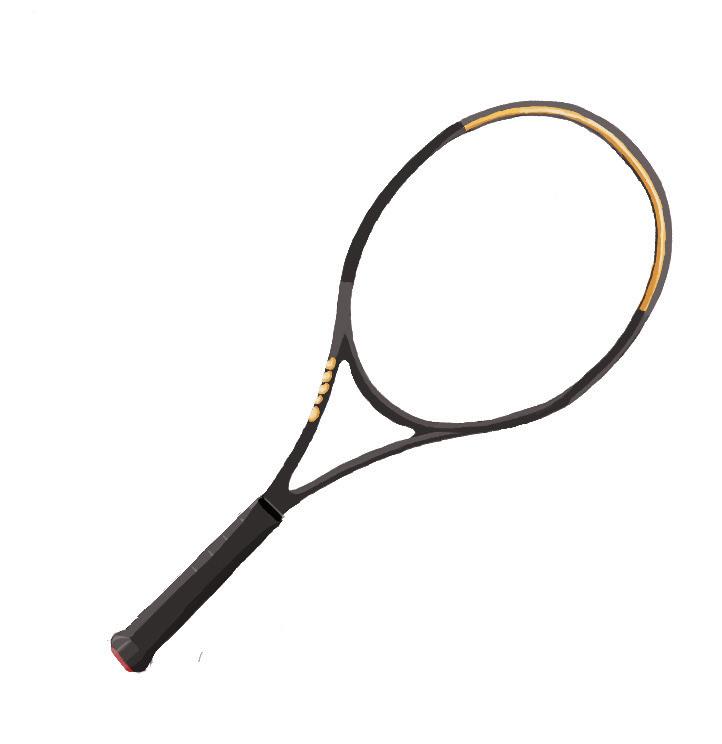
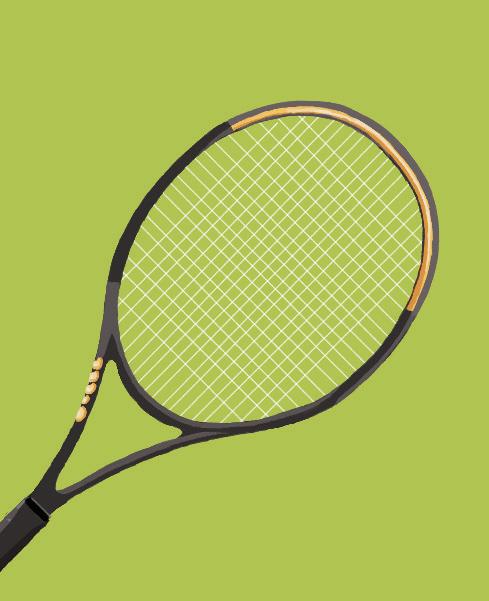
Williams’s father, Richard Williams, played a large role in her tennis career, training her and her sister, Venus, from an early age and pushing her on the court.
“ ese are happy tears,” Williams said. “It’s been a fun ride.”
With 23 Grand Slams, 367 match wins and 73 career singles titles in her belt, she has had an incredibly impressive career. She has broken records, including the most Grand Slams in the Open Era, and inspired a generation of tennis players to come.
In an article written by Williams for Vogue, Williams
announced her retirement from tennis at 40 years old. “I’m here to tell you that I’m evolving from tennis,” Williams wrote. “I never wanted to choose between tennis and a family. If I were a guy, I wouldn’t be writing this because I would be out there playing and winning while my wife was doing the physical labor of expanding our family. Maybe I’d be more of a Tom Brady if I had that opportunity… if I have to choose between building my tennis résumé and building my family, I choose the latter.”
Williams has a daughter, Olympia, and was pregnant when she won her 23rd grand slam.
“I went from a C-section to a second pulmonary embolism to a grand slam nal. I played while breastfeeding. I played through postpartum depression,” Williams told Vogue.
Williams has been outspoken about her journey, empathizing with many women throughout the world. In 2014, Williams created Serena Ventures, an investment company after she was told that “less than 2 percent of all [venture capital] money went to women.” She realized “that someone who looks like me needs to start writing the big checks.” Now, Serena Ventures has invested in 16 companies and added their rst male associate to their all-female business, who Williams considers a “diversity hire.”
Not only is Williams a tennis legend, but a mother, sister, wife and an advocate for body positivity, equal pay for all women athletes and equal rights on and o the court.
“I’d like to think that, thanks to me, women athletes can be themselves,” Williams said. “ ey can play with aggression and pump their sts. ey can wear what they want and say what they want and kick butt and be proud of it all.”
Serena Williams’s tennis career comes to a close, but her legacy lives on.
After a two-year hiatus, sixth-grade camp is back. Up perclassmen served as coun selors for the camp, which was held late last month.
PHOTO BY CAROLINE KEGG ’24For the past two years, the UA Schools sixth-grade camp has been canceled, along with many other opportunities. is was a huge disappointment for stu dents, as they would miss out on what many would consider their favorite activity of the year. Now, with Covid restrictions lifting, sixth-grade camp has returned.
Taking place at Camp Oty’Okwa, near Hocking Hills, sixth-grade camp is a multi-day ad venture lled with new experienc es. However, it has been changed in various ways.
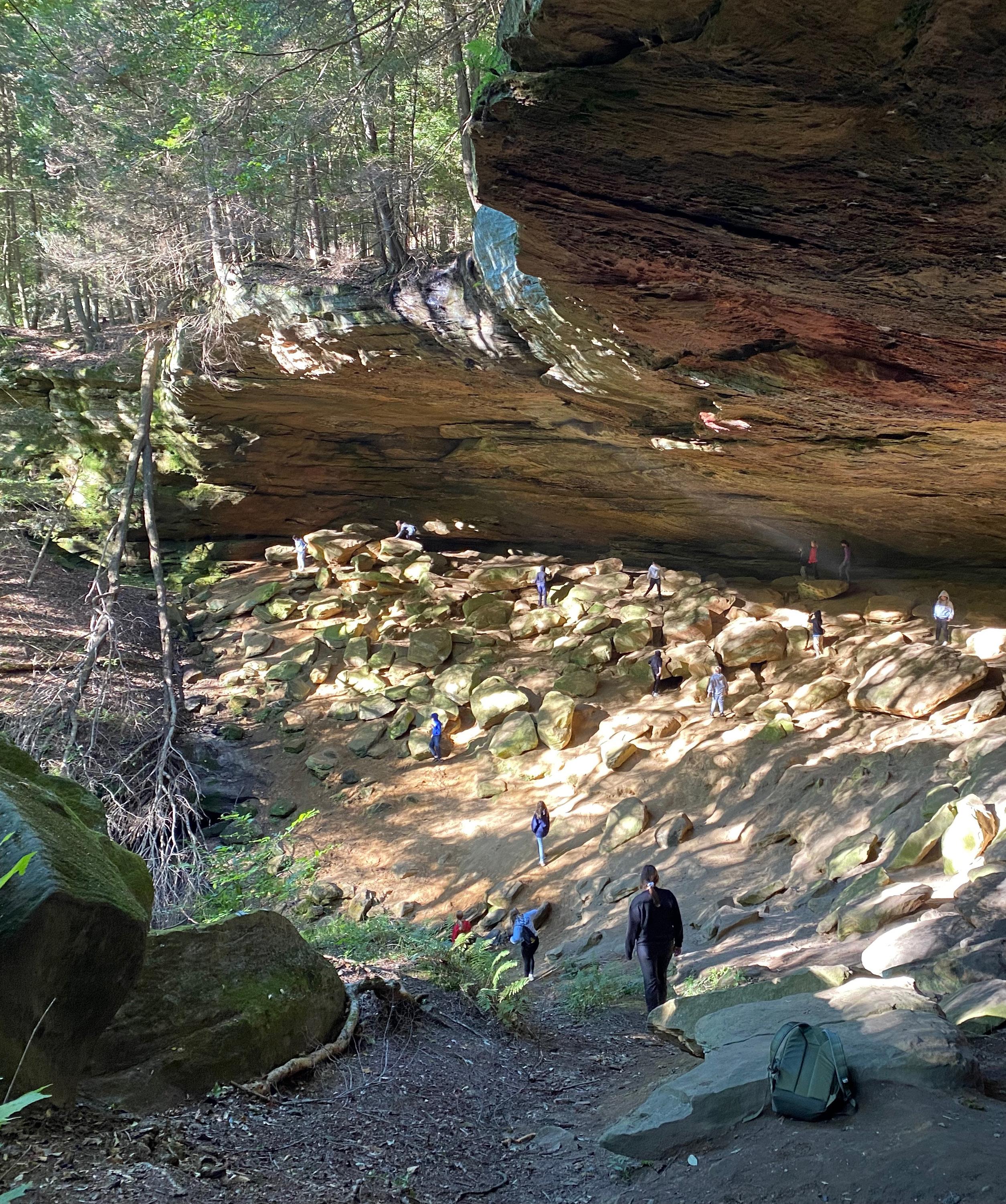
“One of the major di erences is the amount of time that camp is occurring,” said Jordan Walker, a science teacher at UAHS who is in charge of coordinating the UAHS counselors with the middle schools.
“In the past, it was three days and two nights, and now it’s going to be two days and one night.” is change decreased the amount of time students spent at the camp, but it was a decision that had both positive and negative connotations. e main positive is that fewer days can help with homesickness, as the camp is most likely the student’s rst time in the wilderness without their parents.
BY RYAN CHO ’25 AND GRETA MILLER ’23“ e reason why they opt ed to do that was to help address the fact that sixth-graders, for a lot of them, this is their rst time away from home, the rst time in a camping situation,” Walker said.
“Homesickness is a really big deal,
Sixth-grade camp has returned with a few changes.
and it’s a lot of changes and you’re away from home and so they’re trying to help with that.”
is is bene cial because it allows the students to step out of their comfort zone without making them too stressed by being away from home for an extended period of time. Students could have a better time as they won’t be burdened with homesickness and can have a better experience with the camp.
On the contrary, this schedule change also removes time that would be spent doing more activities, as they were not able to do everything that people in the past have done. However, the change to fewer days may have more positive e ects than negative as the sixth-graders will still have the opportunity to enjoy the outdoors with less likelihood of becoming homesick.
e sixth-graders arrived at Camp Oty’Okwa by school bus and were immediately assigned to their cabins. ey were not be able to choose their cabins, but were instead assigned to a cabin by school administrators based on their answers to a questionnaire. ere were also some restrictions concerning who was permitted in cabins together.
“Cabins are divided up by gender, male and female,” Walker said. However, this rule is exible. “For students who are identifying as a di erent gender, there are opportunities for them to have sleeping quarters that both make them comfortable and other campers comfortable. at way, everyone is able to be included and participate.”
In each cabin, a high school counselor will be in charge of the group. ey are responsible for the sixth-graders in their cabin, help-
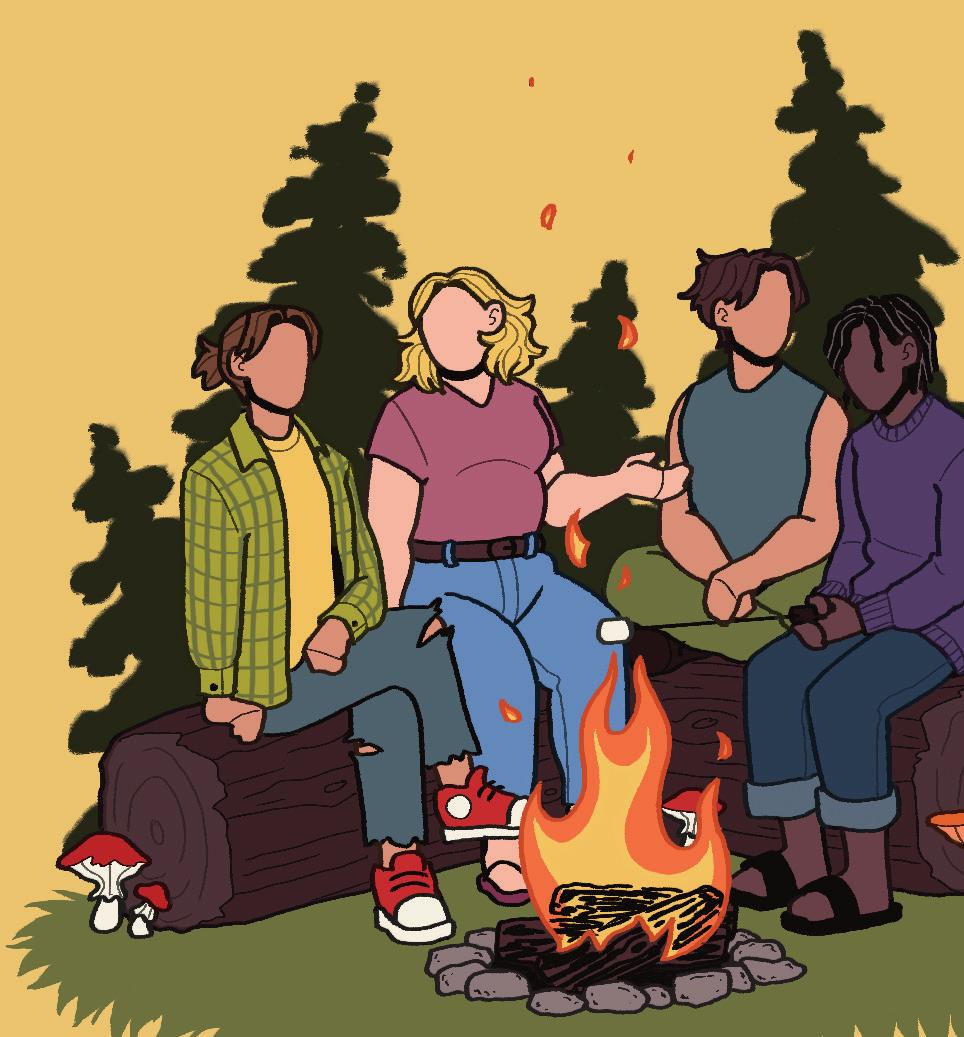
ing them with whatever they need. ey are also there as a familiar connection for the middle schoolers.
“ e juniors and seniors are essentially there to, number one, make kids feel welcome and support the students who are maybe a little uncomfortable and have never been away from home before,” Walker said.
Toward the end of last school year, juniors and seniors were given a chance to apply to become a counselor for the trip.
“I felt that it was a really good way to give back to the community,” senior Caden Colombo, who was a counselor, said.
With sixth-grade camp occurring on Sept. 20 and Sept. 30, the counselors were given many opportunities to engage with the future generations of students and to become role models.
As the juniors and seniors had most likely gone to sixth-grade

camp before, they are familiar with the camp experience and understand the signi cant di erence a good counselor can make.
“I remember [sixth-grade camp] being a lot of fun, and the counselors were a big part of that,” said senior Ryan Nichols who was a counselor. “So if I’m able to serve back to the younger kids who are in sixth grade, that would be a really good experience.”
ey are also there to encourage the kids and help them in multiple ways. During hikes, one to two counselors follow the group in the back to make sure none of the sixth-graders fall behind. ey are also the rst people there in the event of an accident, helping students and contacting teachers if there is a major emergency.
“I went to Oty’Okwa a bunch when I was a kid,” Nichols said. “And it [was] cool to go back there one nal time before college.”

UAHS sophomore re ects on her successful gure skating career and looks to what’s next.
BY ADELAIDE PETRAS ’24Sophomore Cecilia Donohue competed at the Ar gentine Junior National gure skating competi tion this past August, claiming rst place in the ladies’ singles category. Having been born in Argentina, she went on to represent the country in the Junior Grand Prix (JGP) Solidarity Cup taking place in Poland from Sept. 28 to Oct. 1.
Q: How long have you been gure skating?
A: I started skating when I was ve. I rst went on the ice when I was two and a half. en, I started doing little group classes, and once you’ve nished the group classes, private lessons. So probably a good nine years.
Q: What is your favorite part about gure skating?
A: It sounds cliché, but the lessons it teaches you. I like the hard work, like falling on jumps, getting up again— you have to try and try and try. And even then, sometimes, they’re not as consistent as you want them to be. I like accomplishing my goals, learning new jumps and spins… [Skating has] also taught me to be happy for other peo ple. I feel like when you’re a kid, when you’re a teenager, you can’t, like, be happy for everyone else if they’re do ing better than you. But skating teaches you early on that you’ve got to celebrate other people’s success, too—and you’ll have your own.
Q: What made you choose gure skating over other sports or activities?
A: I committed a lot of time to it. Even in elementary school, I’d be leaving early from school to go to practice because I had such a rigorous schedule from when I was so young. And then it made me, sounds cheesy, but, fall in love with the hard work. I feel like I got through a lot of the lessons [that] sports teach you quicker in skating than I did with soccer or lacrosse.
Q: What moment from your athletic career are you most proud of?
A: I won Midwestern sectionals as a juvenile a few years ago when I was in fth or sixth grade. at showed me that I could keep going with it. I don’t know; that was just the rst time that I got a taste of what I was cliché again capable of, what I could do. And then also this past weekend, winning Junior Nationals. I’ve been think ing about the whole situation for the past few months… But [once] you’re actually there, it’s a really cool feeling.
Q: Who’s your role model and why?
A: Gosh, I’d probably say my mom because she’s a doctor; she went through so many years of medical school. She grew up in a small town in Argentina, met my dad, and moved to the states to become a doctor. And now she’s built herself up a good life for her family; that’s what I always hope to be able to do. In skating, I admire Mariah Bell. I really like her. But they all cycle through so quickly because skating, at least right now, is not really a longevity sport. You kind of are in your prime for two, three years, and then you’re out. But Mariah Bell is probably my role model for skating.
Q: What are your plans for your future in gure skating?
A: I’m gonna be doing at least two more years as a junior, and then my rst senior eligible year will be the year of the Olympics. So, obviously, my goal would be to be able to go to the Olympics: Milan 2026. en I’d probably take a gap year after high school, and then go to college the year following.
Sophomore Cecilia Donohue rehearses for the Junior Grand Prix Solidarity Cup. Donohue placed frst in the Argentine Junior National fgure skating competition in August.
PHOTOS BY CAMRYN JOHNSON’24
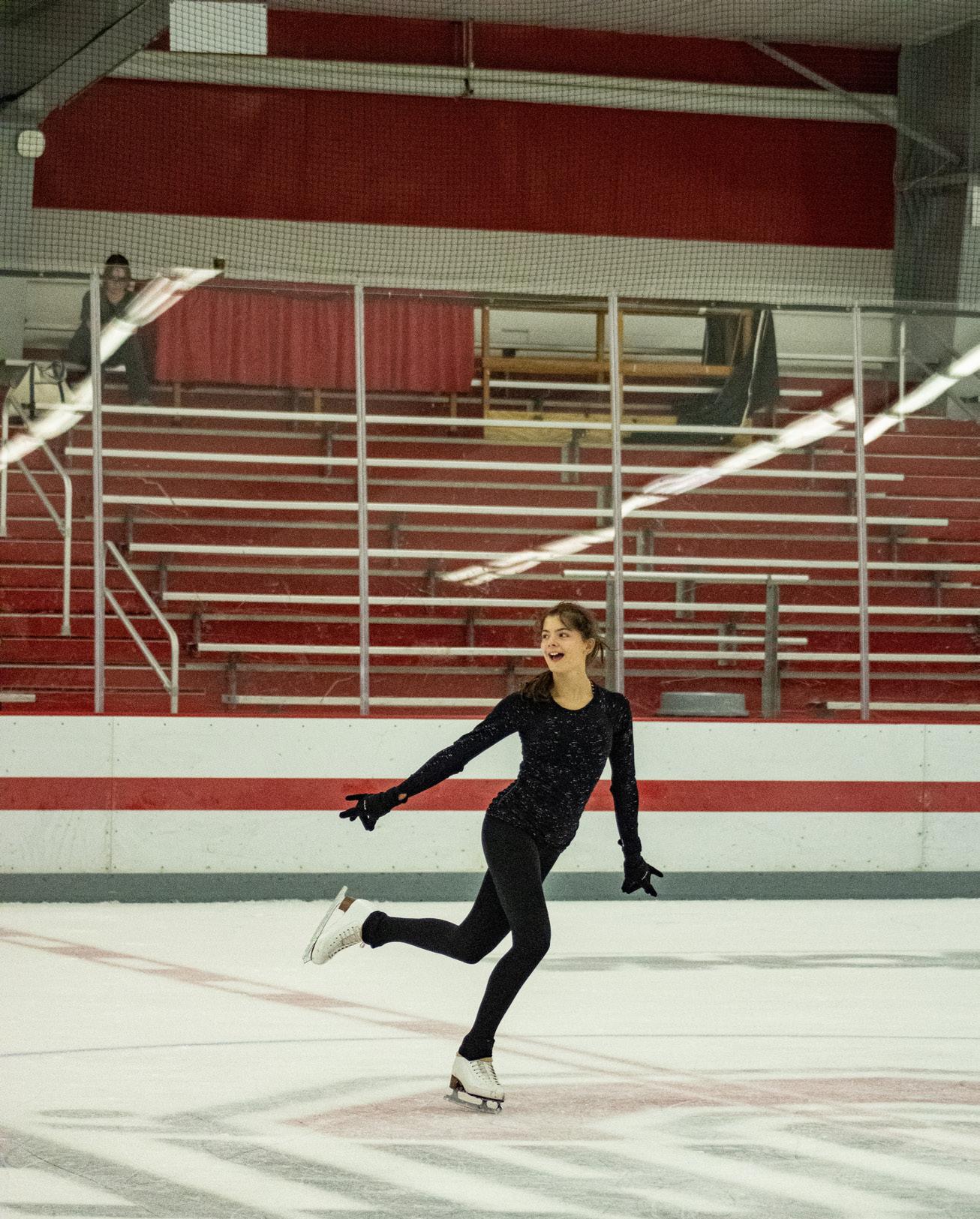

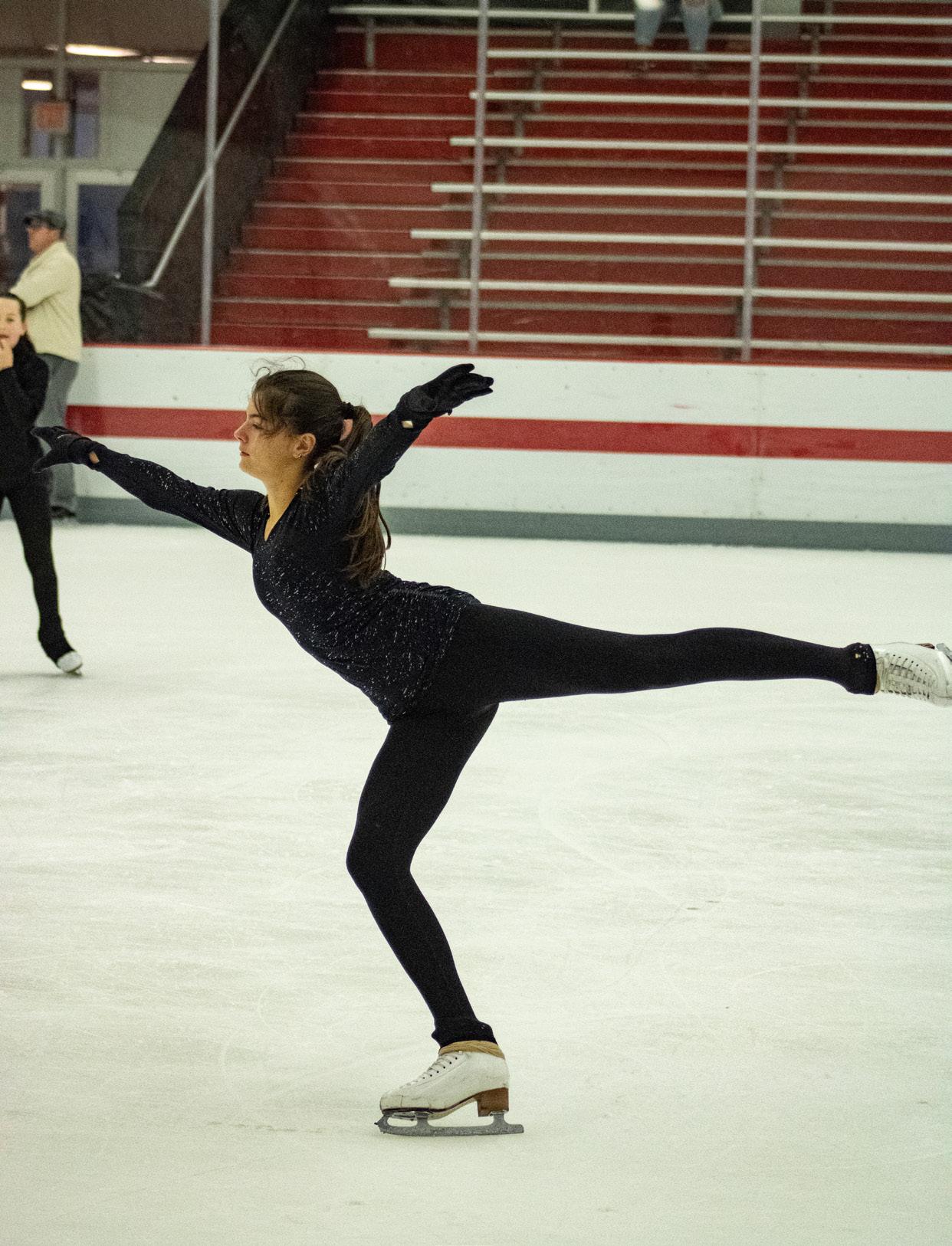
Keelan Wright moved from Madison, Mississippi, to Columbus, Ohio, in the summer of 2021. e unforeseen move sprung many challenges upon Wright, including assimilating to a new school, making new friends and advancing his athletic career.
Cheer was an activity Wright decided to pursue in Columbus. However, he began his cheer career in his hometown of Madison, Mississippi. “I started cheerlead ing my sophomore year of high school at Ace of Jacks, in Jackson, Mississippi,” Wright said.
Wright’s mother Lori dates the start of his love for tumbling and cheer to his early childhood.
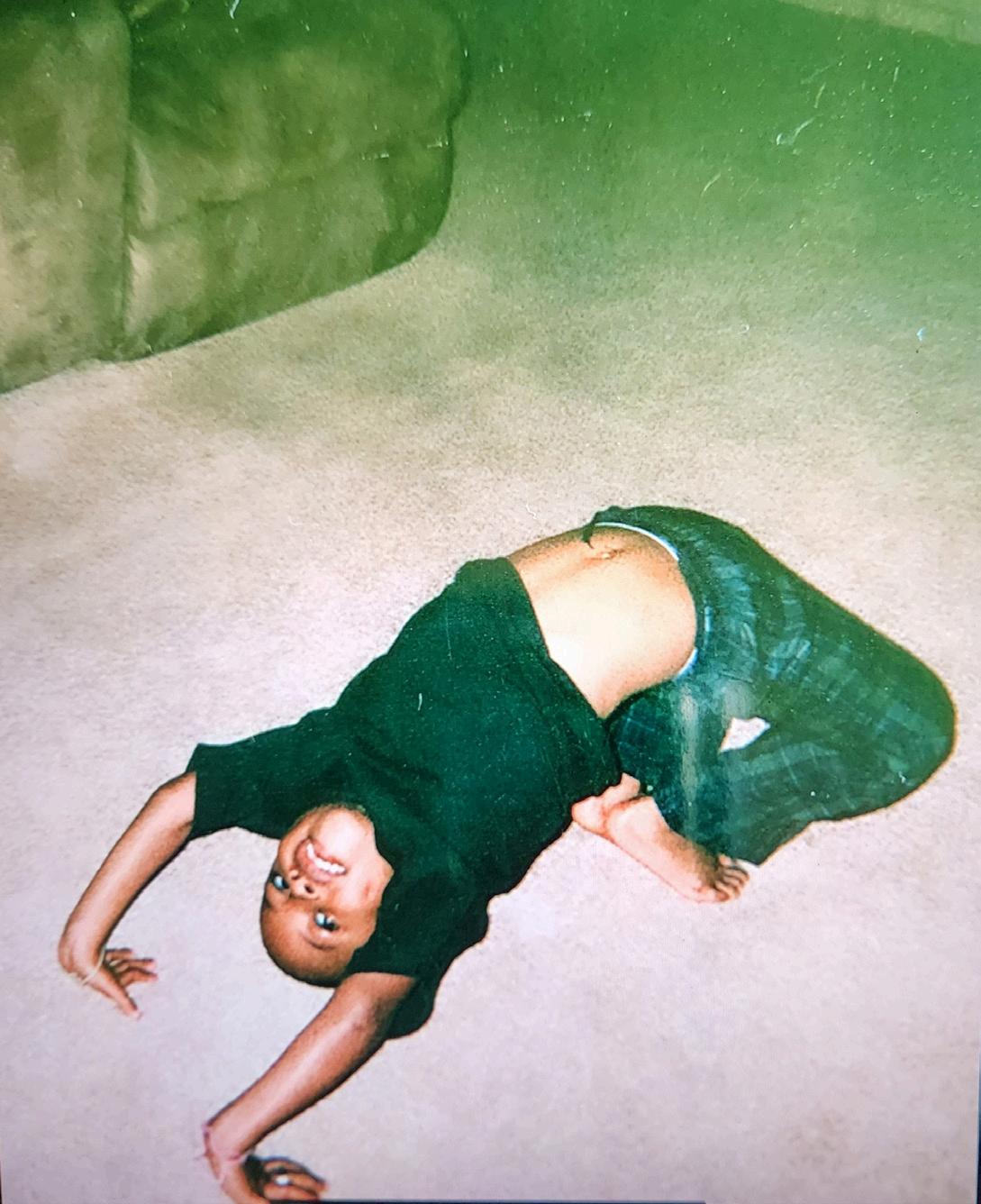
“He’s always been ipping since he was little — he always said he thought he was Superman,” she said.
Wright started competitive cheering his sophomore year of high school at the suggestion of a former class mate.
“One of my best friends from back home, they really wanted me to do it because I’ve always been into cheer, like ipping,” Wright said. “I’ve always known how to do it, but they thought I should be on a competitive team.”
Unlike his involvement at Upper Arlington, Wright never cheered for his high school team in Madison.
“So at Madison, they stunted,” Wright said, refer ring to a cheerleading derivative that focuses on skill and dexterity. “It was all girls, there were no boys on the cheer team, no one had ever tried out as a boy. I didn’t even try out and they stunted, basically that’s the only di erence, they stunted and UA doesn’t.”
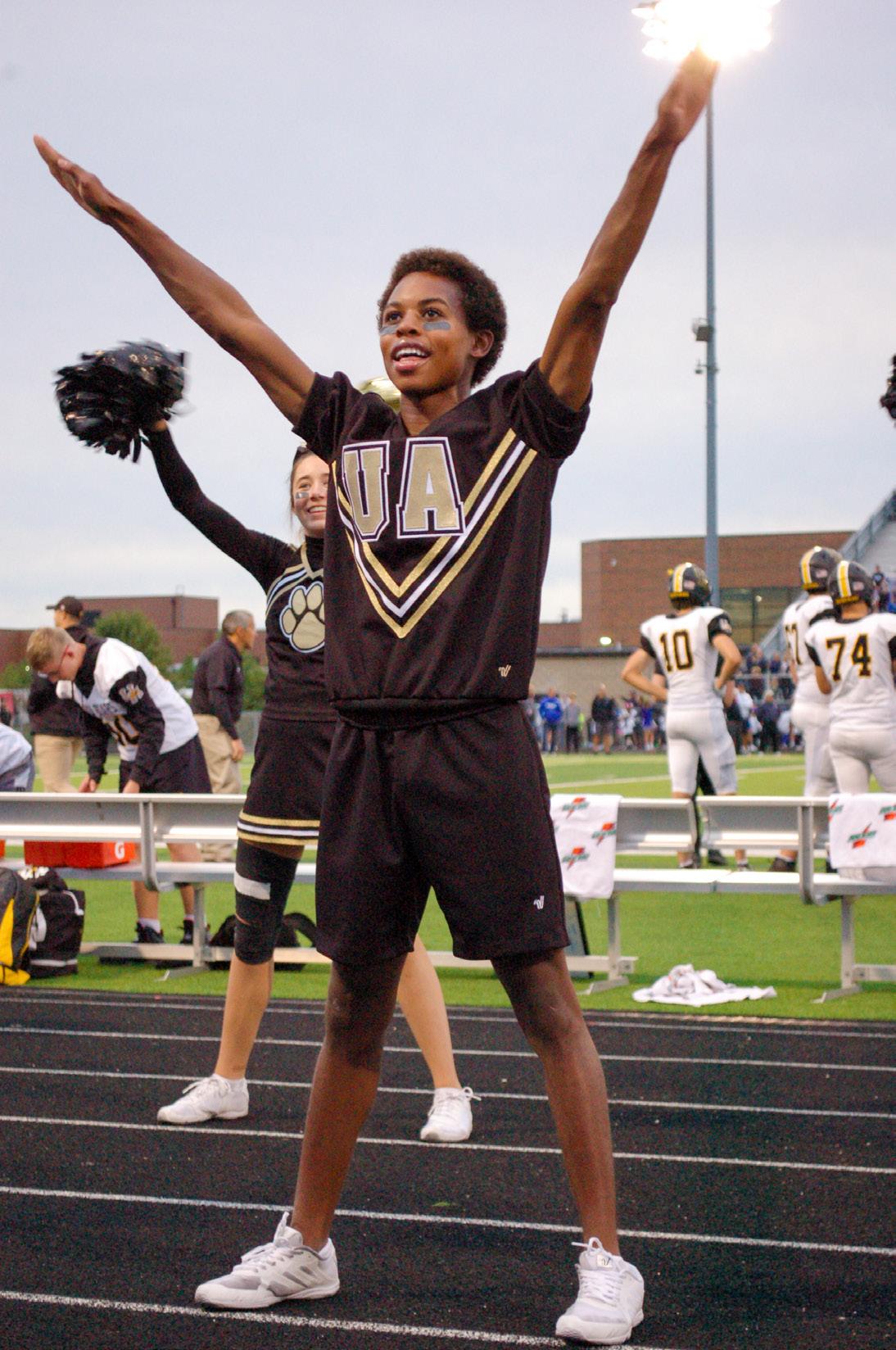
Despite the di erences between Madison and Up per Arlington, cheer has helped Wright adjust to his new school.
“I 100% would say that cheer did help me get into the new city as a whole and just that [the] cheer team, they were super nice and super excited for me. All the graduated seniors were like ‘ is is so cool,’ ‘No one’s ever done this before,’ [and] ‘I’m so happy that you’re doing this,’” Wright said. “It was very nice.”
Senior cheerleader Sydnie Trinh has enjoyed her time on the team with Wright.
“He’s always positive,” Trinh said. “He doesn’t have anything bad to say, ever.”
PHOTO COURTESY LORI WRIGHTWright’s extroverted personality has been shown through his relationship with his teammates.
“He interacts with everyone,” Trinh said. “He makes it easier to talk to everyone else, too.”
However, the move to UAHS was still at times dif cult for Wright, said Lori Wright, his mother.

“He’s always been a social butter y, so last year when I didn’t get even a little bit of that, it was like, ‘[Keelan], you’re going to have to open up a little bit more — you know, just be yourself,” she said.
Wright spoke more to that anxiety.
“When I moved here, I was very anxious about not having any friends, or, like, just having to t in and be close-knit with people that already have their own set groups,” Wright said.
Having been enrolled at UAHS for over a year now, Wright has adjusted and found places where he is able to showcase his personality and talents. e student body recognized this when it crowned him Homecoming King in September. A highlight, of course, is the Marv Stadi um on Friday nights.
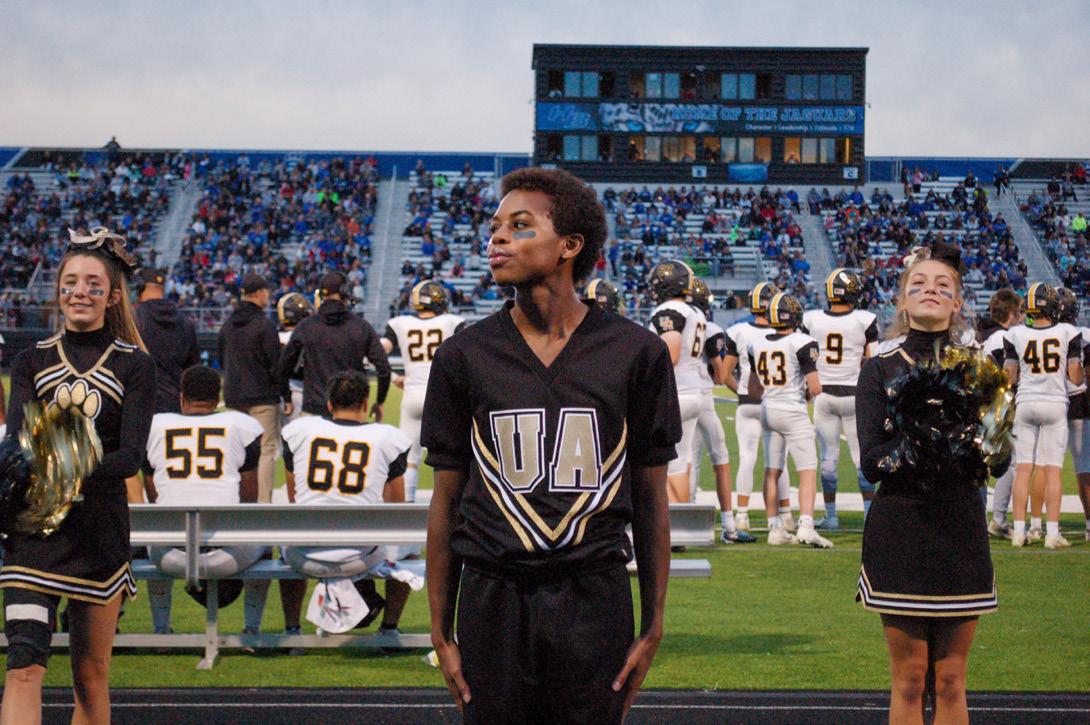
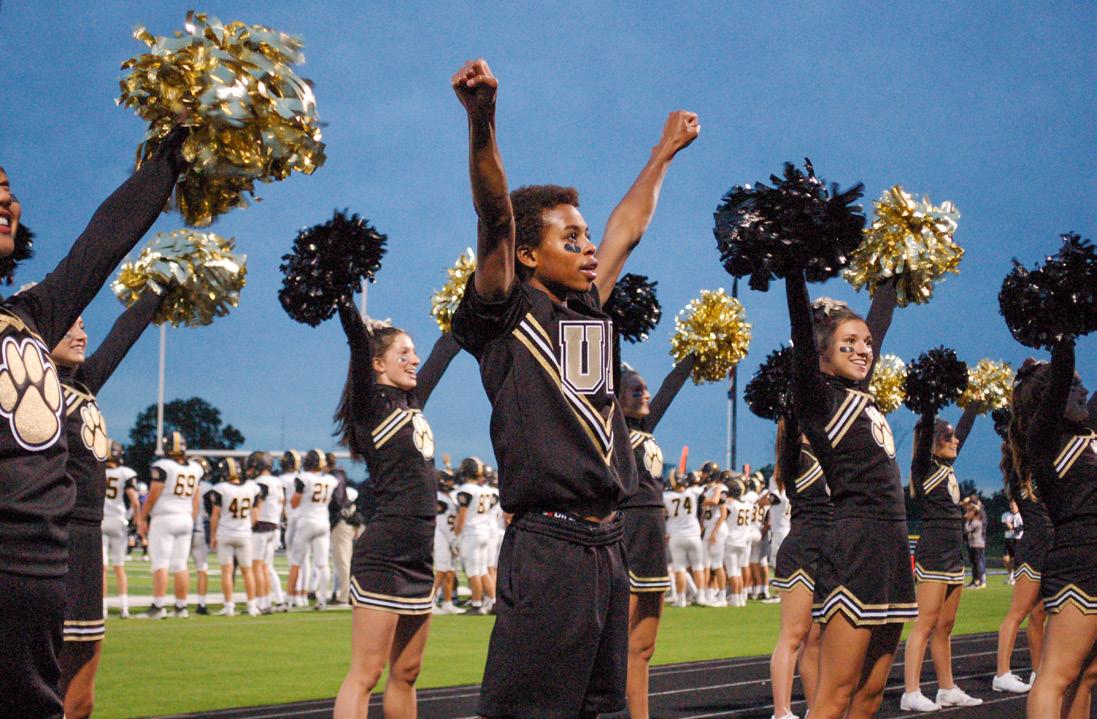
“To be next to that student section at the game — oh my gosh — it is completely overwhelming,” Lori said. “I love it for him.”
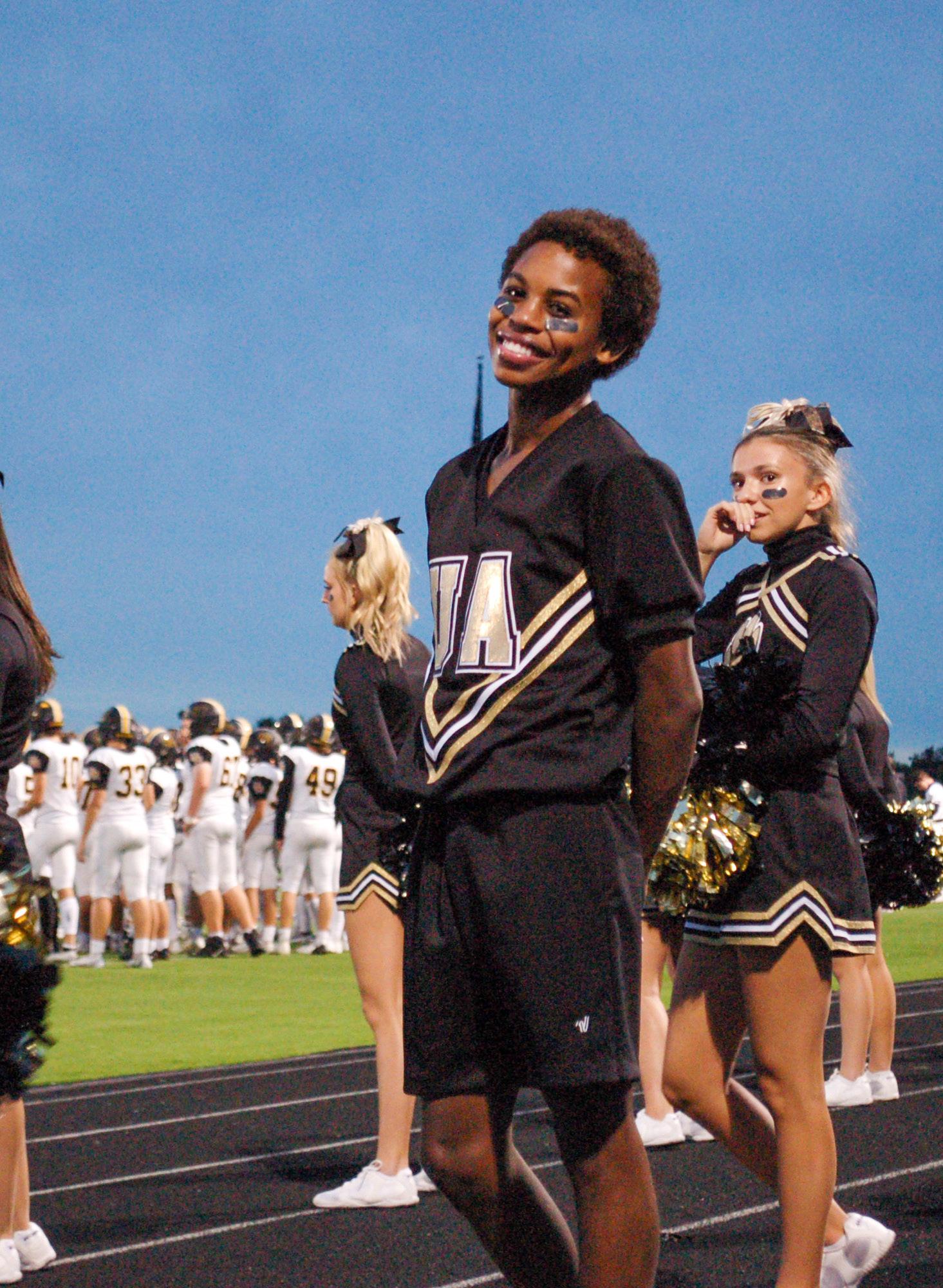 PHOTO COURTESY LORI WRIGHT
PHOTO BY HAILEY HOFFMAN ’23
PHOTO BY HAILEY HOFFMAN ’23
PHOTO COURTESY LORI WRIGHT
PHOTO BY HAILEY HOFFMAN ’23
PHOTO BY HAILEY HOFFMAN ’23


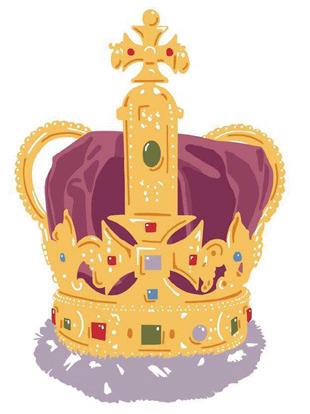
























186
I have been to a UAHS football game.
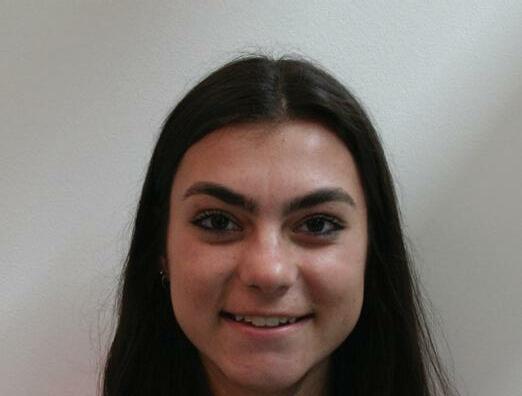




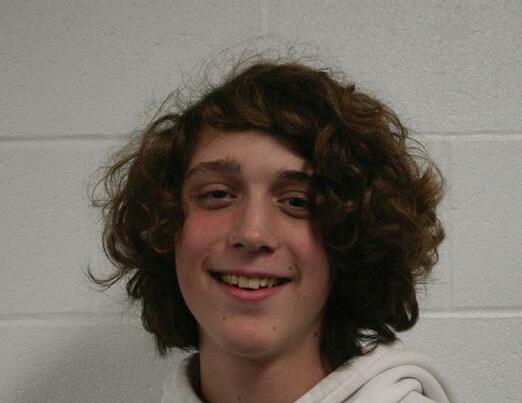


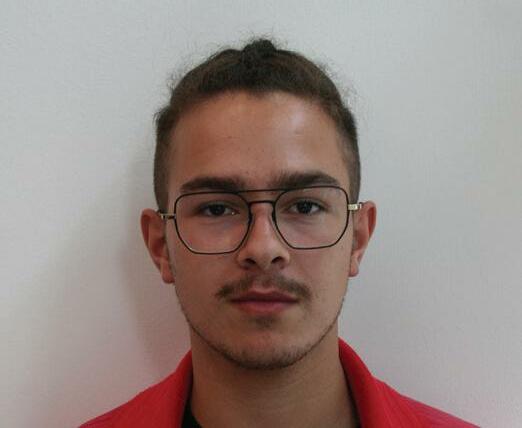

195 RESPONSES




RESPONSES

I


RESPONSES

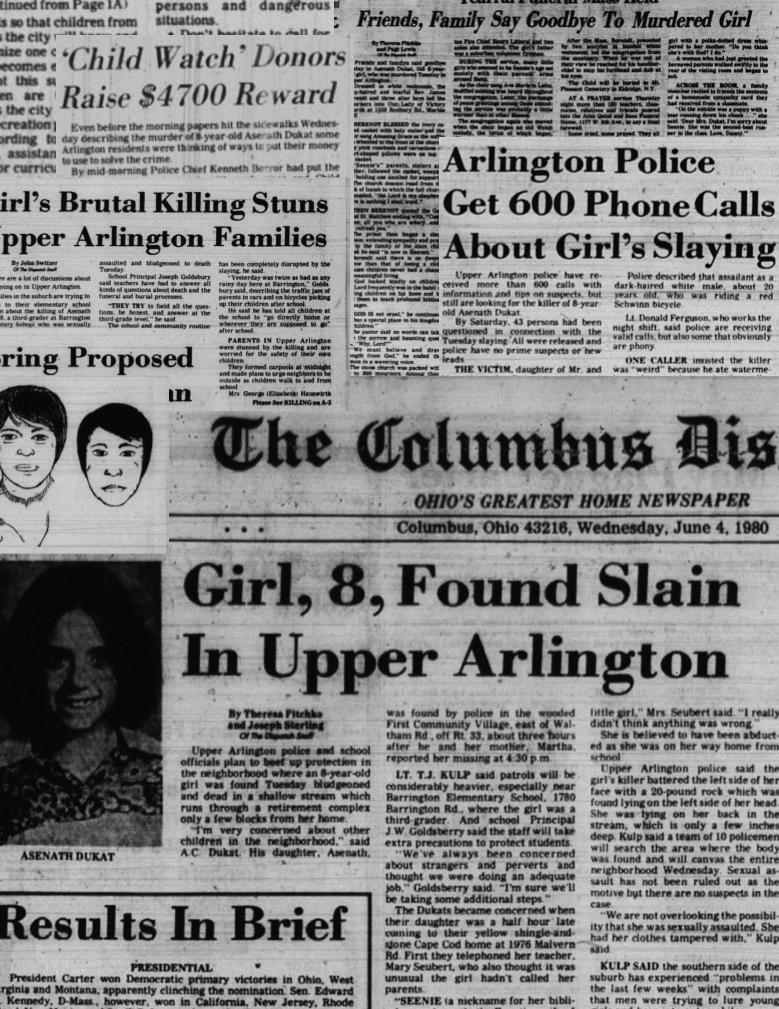
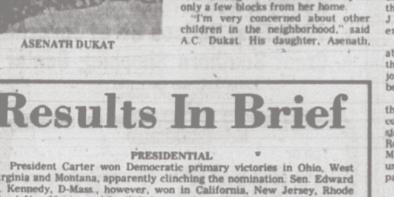
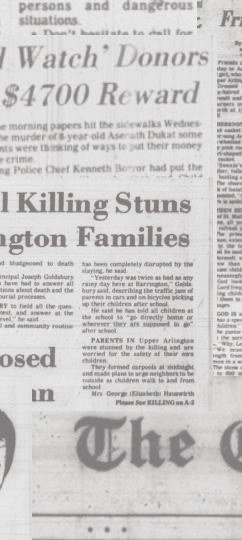
In 1980, a tragedy caused ripples in the carefree suburban atmosphere of Upper Arlington: the murder of Barrington Elementary School student Asenath Dukat.


Residents were shocked by the murder, as Upper Arlington had always been known to be a community with low crime rates. According to the Columbus Dispatch, Upper Arlington was recently named the 14th-safest small city in the U.S. and the safest in Ohio.
PETRAS ’24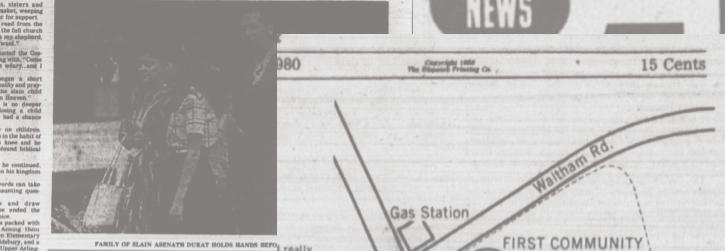
Arlingtonian ran a story about Asenath’s case in 2019 titled “Innocence Lost.” e story outlined the events of the murder and included an interview with an anonymous representative from e Long Walk Home: e Asenath Dukat Project, a project dedicated to bringing awareness to the case. At the time of publishing, the case was still unsolved, and the community was pushing for further action from the Upper Arlington Police Department (UAPD).
However, since the 2019 story, there have been developments in Asenath’s case. After over 40 years, the case has nally been closed this past August when UA Police declared Brent L. Strutner as the sole perpetrator.
To some, this is relieving news signaling the end of a decades-long investigation and is symbolic of the closure of an era full of distress. But others believe that the case should not be closed, as there may be more potential leads to investigate.
Police say they’ve solved a 1980 murder case that rocked the community. But some harbor doubts about their conclusion.
June 3, 1980, was meant to be like any other day in Upper Arlington, Ohio. It had been a warm Tuesday afternoon, the second to last week of school before sum mer break for Barrington Elementary School. Asenath “Seannie” Dukat and her third-grade class were burst ing at the seams with excitement for the end of the day.
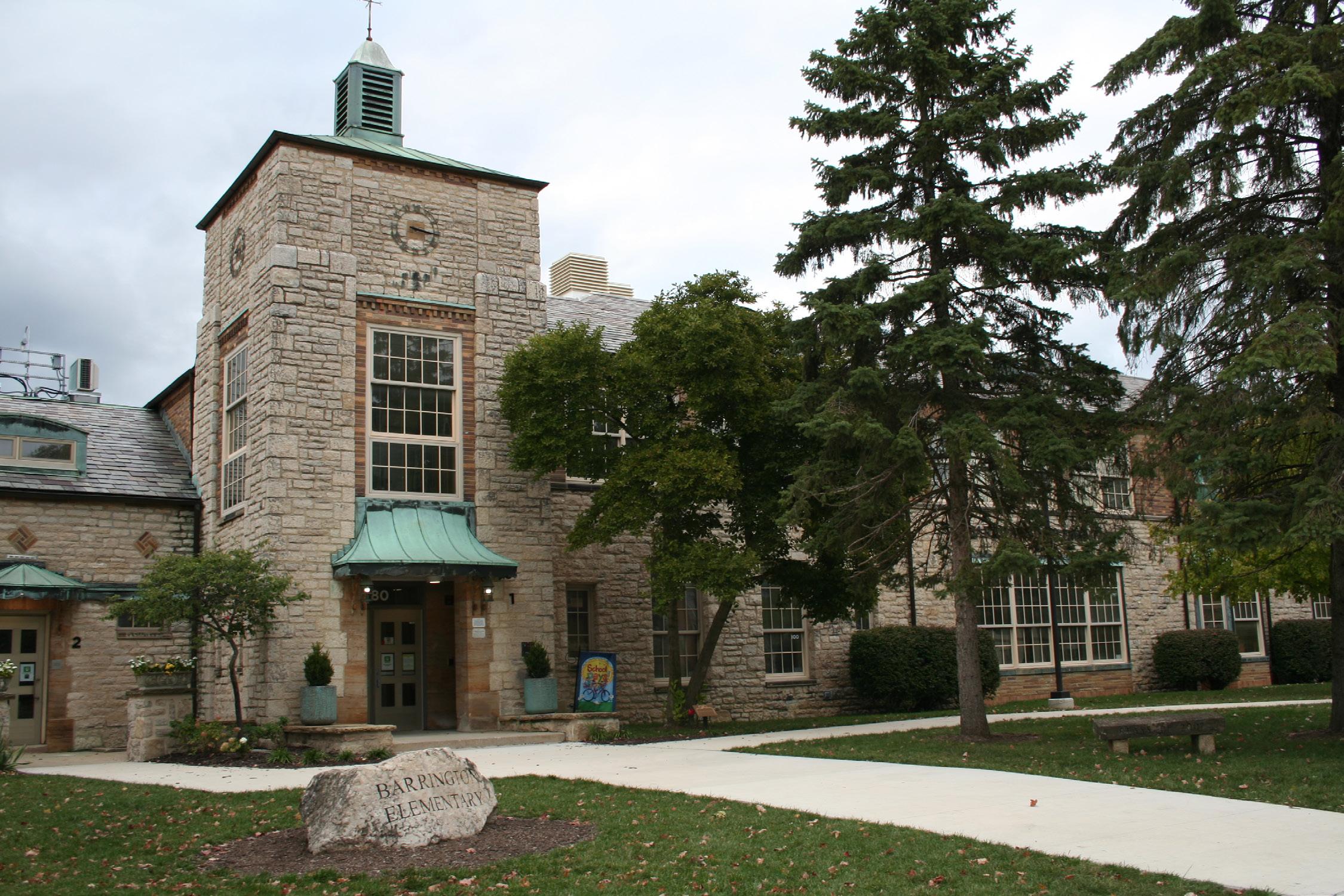
“I remember that we got held back after school be cause we were being horrible,” Tracy Plummer, a former Barrington student and classmate of Asenath’s, said. “Mrs. Seubert gave us 10 minutes of detention.”
Once the time past their 3 p.m. dismissal was up, Asenath collected her things before realizing she had forgotten her lunchbox.
“So we walked down down to the cafeteria togeth er and she got her lunchbox,” Karen Rossetti, a class mate and friend of Asenath’s, said. “And so [Asenath] went out the door by the cafeteria, I went o to the oth er doors with my younger sister and we walked home.” e eight-year-old Asenath lived a roughly 20 minute walk away from the elementary school on Mal vern Road with her four siblings and parents.
It was her mother, Martha Dukat, who noticed when the clock struck 4 p.m. and Asenath still wasn’t home. She began calling around, frantically asking Mrs. Seubert and classmates’ parents if anyone had seen her daughter before reporting her missing to police at 4:34 p.m.
It was later known that around 3:20 p.m., Asenath was spotted walking down the shaded street of Waltham Road by her classmates.
But that would be the last sighting of Asenath Du kat before 7:26 p.m., when a call came into the Upper Arlington Police Department scanner to notify author ities of a body discovered in a creek bed at the opening of a culvert near First Community Village. Asenath had been found.
After hours of searching the neighborhood, the third-grader was found laying on her back in the stream, a 20 pound limestone rock found beside her body. News spread like wild re, and before they knew it, the UAPD had 600 people calling in with tips about the murder.
“I remember speci cally my mom walking into the kitchen… and she showed me a composite picture
of the person that did it,” an anonymous representative from e Long Walk Home said. “For the rst time in my life, I felt scared and nervous that, you know, I could be harmed.”
ree days later, a funeral was held for eight-yearold Asenath Dukat. e once quaint community of Upper Arlington was rocked to its core by her murder.
“Everything changed,” Kathy Rossetti, a Barrington graduate and sister to Karen, said. “We never walked home from school again.”
e once simple idea of walking to and from school or around the community was forever changed because of Asenath’s shocking death. Parents imagined the worst standing on their front porches as their children made the short 100 foot walk to a neighbor’s house.
“ ere was a sense of innocence and safety, and Upper Arlington changed forever from that time,” e Long Walk Home representative said. “Walking home by yourself from school, which was very normal, turned into getting picked up.”
Plummer remembers the following days similarly; walking anywhere alone became unthinkable.
“ e next day was a school day, and I think we were supposed to have our [class] picnic, and they decided not to. ey decided to do it on the school grounds instead,” Plummer said. “Because everybody was just really nervous. And everybody was driven to school and from school for the next, however many days were left.”
Karen Rossetti remembers the days following Asenath’s murder in vivid detail. e level of protection, by both the community and UAPD, skyrocketed. Parents ocked the streets to pick up their children after school, unwilling to risk Asenath’s fate with their own kids.
“ e next day, the police swarmed the schools,” she said. “ ey were all over the schools. Yeah, all of us kids were scared. We were afraid of being on the playground.”
To increase childrens’ safety, a community member came up with the concept of “Safety Spots.” Safety Spots were denoted with an orange paper with a black
Asenath Dukat was abducted on her walk home from Barrington Elementary School on June 3, 1980. Her body was found that evening.
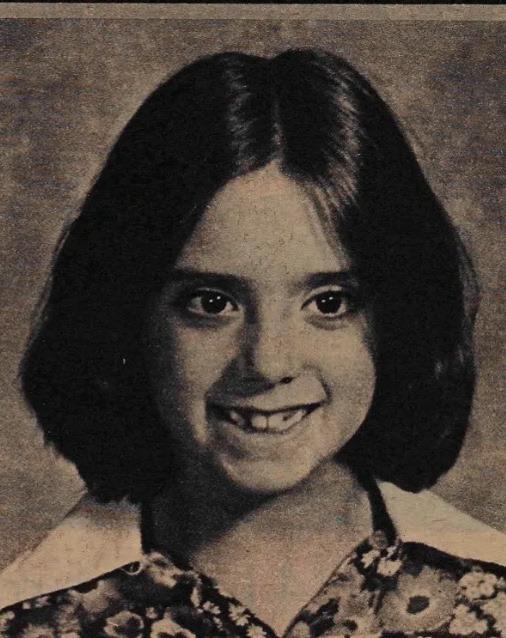 PHOTO BY EDITH LEBLANC ’23
PHOTO BY EDITH LEBLANC ’23
circle and were placed in the windows of houses. Homes marked as Safety Spots were open for any child to come in if they were lost or felt as if they were in danger. e idea paid o when Plummer found herself in need of help on her way home.
“I decided to walk home from Girl Scouts and I went the wrong way,” Plummer said. “And so I went to a house… called my parents and told them I was lost.” ere have been other scenarios where kids have been in need of help and the Safety Spots have helped provide that sense of security to the community.
e UAPD got to work after Asenath was found. O cers patrolled the streets as detectives went from house to house, trying to recount the events leading up to her death.
“I’m eight years old, and Mom’s telling me to come down from my room, and there’s two detectives… and she’s like, ‘they want to talk to you,’” Karen Rossetti said. All students in Mrs. Mariruth Seubert’s thirdgrade class were interviewed in an attempt to recall Asenath’s last movements.
Much of the police’s determination could have
stemmed from the connection to an eerily similar at tack only a month prior and less than a mile away from where Asenath was discovered. Prior to Asenath’s mur der, on May 7, 1980, a nine-year-old girl was attacked on her way home from Tremont Elementary. She had been found in a secluded area near Waltham Road after being battered and most likely raped.
After some inquiry, the suspect was determined to have been spotted on a red 10-speed bicycle, but de scriptions of his appearance varied.
Police believed that the perpetrator of this attack was also involved in the murder of Asenath Dukat. is theory formed partially out of the presence of a red 10-speed bicycle at both sites, as well as similarities in descriptions of the suspects.
e aforementioned suspect was identi ed as Brent L. Strutner, a 1979 Upper Arlington high school graduate. He attracted attention due to violent and un usual behavior in the months and days leading up to and following June 3.
Strutner was the rst suspect who the UAPD publicly identi ed, and he was o cially recognized as Asenath’s killer this year. Continuously developing DNA technology has played a major role in the solving of this case and the con rmation of Strutner’s involve ment.
“ e case is o cially closed. If there ever were some updated, further types of advancements in DNA that would lead us to be able to make a lead that we haven’t already made, we would certainly submit any evidence for that type of investigation,” Keith Hall, a lieutenant with UAPD, said. “If some lead were to pop up or somebody came forward with information that we don’t have, then we would reopen the case for that as well.”
Additionally, Hall mentioned that after acquiring the DNA results that played a major role in the verdict around 2006, the police department had to continue de liberation in order to handle the evidence properly.
“So we were nally able to make that announce ment after continuing to investigate the case for the next roughly 15 years till we were at today, to ensure that we were not missing anything to do with any co-con spirators,” Hall said.
Strutner struggled with mental illness, drug abuse, hallucinations and paranoia throughout his life and ap parently had an “impaired ability to recognize unusual, problematic aspects of his behavior.” He later commit ted suicide on June 8, 1984, just a few days after the four-year anniversary of Asenath’s murder.
However, it must be noted that Strutner was not the only suspect; Robert “Chris” Winchester was and still is thought by many to be involved. Winchester, who could not be reached for comment, was only one year older than Strutner, and the pair resided on the same street, only six houses dividing them. Additionally, the two were reported to have been close friends, with Strutner being a henchman of sorts to Winchester.
“From what I understand, he was almost like the puppet master to Brent,” Kathy Rossetti said. “You know, Brent kind of was a follower to Chris.”
Similarly to Strutner, Winchester had a history of repeated violence, including the abduction of a 13-yearold girl that occurred near the Olentangy Commons apartment complex on September 27, 1980. Winchester was also a main suspect in the May 7 attack. Police drew parallels between the May attack and the September ab duction, connecting all three crimes to each other. ere were similarities in the execution of the crimes and the time frames in which the incidents occurred.
Additionally, footprints resembling Winchester’s were found at the scene of Asenath’s death. However, both the footprints and DNA evidence were labeled as “inconclusive ndings.”
Although Winchester was convicted of the Sep tember abduction, he was unable to be con rmed as a player in the murder of Asenath Dukat.
Lieutenant Hall con rmed that the police depart ment is no longer investigating Asenath’s case to any degree.
Many Upper Arlington residents have contributed to the case over the years by calling in with tips and keeping Asenath’s memory alive as the case went cold. But a select group of seven, all who have a relationship to Asenath or her case, decided to take on the case.
“ e Long Walk Home: e Asenath Dukat Proj ect” began about three years ago. ose behind the pro gram have remained anonymous so as to not compro mise the motivation behind the website and to focus on remembering Asenath’s memory.
“We just want to help bring closure to the com munity,” an active representative from the project said. “We’re not trying to be famous.”
Over the past few years, the group has worked with those in the community and the UAPD in an e ort to bring closure to Asenath’s family.
“ ey were a big help,” Hall said. “I mean they
were a second set of eyes, I guess, for the investigators throughout the years.”
Hall took over as detective sergeant of the case in 2016 and has since then worked to nish what 40 years of investigators have compiled.
“UAPD has been a good partner to us in answering questions and being supportive, and really anyone that takes an interest in the case has been very supportive,” the representative said. “We’ve had over 50,000 views of the website… We’ve had ve podcasts made about it, all sourced from around the USA.”
e Long Walk Home has received outpouring support from not just the Upper Arlington community, but the nation as well. Both Karen and Kathy Rosset ti share this interest, commenting on the impact this group has had on the case.
“Honestly, I think e Long Walk Home com mittee or group that started this has been the driving force behind getting the police more motivated, more involved…” Kathy Rossetti said.
e project has assisted in keeping Asenath’s mem
ory alive and keeping her case from being put to rest.
“Sometimes it’s foggy. It’s like I don’t remember,” Karen Rossetti said. “So e Long Walk Home has lled in a lot.”
Upper Arlington residents have expressed their gratitude to the website as well, praising the easily acces sible information. Before e Long Walk Home, police held many of the answers and the select amount of in formation that was released was only accessible through the daily newspaper. Without the Internet, phones and the technology available today, many residents of the community were left in the dark.

“ ere was just so little information out there and I think we are de nitely the rst people that have gath ered it, put it together [and] worked hard to make sure everyone knows the details,” the representative said. e website is lled with every detail regarding the case. e information has been compiled over the years and has been consistently updated as new information is released. Since the case was recently o cially closed and active investigation has stalled, the website remains at a stand still until new information, suspects or leads arise.
“It was built for peo ple that truly care. It’s not like a surface level… this is every single detail,” e Long Walk Home repre sentative said. “So it’s an opportunity for people that have an interest in this to really dig in.” ose involved in e Long Walk Home weren’t the only ones who decided to take action af ter the death of Asenath Dukat—Youth Education for Safety (YES) was cre ated in 1981 in an attempt to prevent similar situa tions. YES is a program intended to teach children to stay safe and is present ed annually to each rstand fourth-grade classes in Upper Arlington City Schools.
 According to e Long Walk Home web
Asenath’s body was found at a creek bed near First Community Village, left. A tunnel known as “Frankenstein’s Cave,” right, was theorized by some to have been used as a getaway for the murderer or murderers.
According to e Long Walk Home web
Asenath’s body was found at a creek bed near First Community Village, left. A tunnel known as “Frankenstein’s Cave,” right, was theorized by some to have been used as a getaway for the murderer or murderers.
site, YES focuses on how to handle the following four situations: unkind behavior from a peer, stranger danger, good touch and bad touch and digital safety.
ese areas of focus, along with the emphasis on encouraging parents to teach their children to remain aware of their surroundings, are reminiscent of advice printed in a 1980 issue of e Upper Arlington News. e advice, said to have been issued by Superintendent Dr. Homer Mincy and Barrington principal J.W. Golds bury, included instructions such as, “Be alert to suspi cious persons and dangerous situations,” and “Look for Safety Spot signs in the windows of homes where help can be quickly available.”
As can be seen in these programs and publications, the desire to help in some way echoed throughout the community. e Long Walk Home and YES are prod ucts of those whose grief led them to take further action.
“All that emotion and all that stu stuck with us and never went away, and over time, we realized there were no answers, and there was no closure and no one really knew much about [the case],” the anonymous rep resentative from e Long Walk Home said. “It almost felt like it kind of was so di cult for the community that nobody wanted to talk about it. And because there weren’t answers, it just frustrated people, so we decided to put it into our own hands and try and make a di er ence ourselves.”
After decades of unease surrounding Asenath’s murder, it may seem that the nal verdict should come as a relief, as it o cially pins down a perpetrator and supposedly clears up confusion about the case. Some share this sentiment, expressing satisfaction with the work of the Upper Arlington Police Department.
“Well, the police department [has] been tremen dous in working for over 40 years to solve the case,” e Long Walk Home representative said.
ere have been setbacks throughout the years, including the lack of technology after the crime rst occurred. Plummer and other residents commend the UAPD in their e orts over the years with the limits they had, only being a suburb-wide department.
“It had to have been so overwhelming to them,” Plummer said. “I wish maybe they could have gone out side for some assistance.”
Despite this, numerous Upper Arlington residents have expressed their discontent with the fact that Brent L. Strutner was the only one con rmed to have been
involved.
“No, they should go further. De nitely further,” Kathy Rossetti said. “It’s not just Brent. It’s more than that.”
Multiple Upper Arlington residents who have been following the case have expressed their con dence that Winchester was involved.
“ ey knew about [Strutner and Winchester] way early on,” Kathy Rossetti said. “I think if they would have pushed it maybe a little bit more, maybe they could have had these guys a little bit sooner.”
In addition to Winchester, some even believe that others were involved. e Long Walk Home website mentions two men who were questioned throughout the investigation but no conclusions were ever drawn that de nitively linked the men to Asenath’s death.
Some have theorized that the possible others in volved were part of some kind of drug operation involv ing Strutner and Winchester.
“[Strutner and Winchester] were also known to hang out in the Frankenstein’s cave. I guess some of the older people, older kids in high school used to do drugs down there,” Kathy Rossetti said.
Many other theories have been formulated over the years, including one that two additional men were involved with Strutner and Winchester. e Long Walk Home created pseudonyms for these two unnamed men, as they have never been o cially linked to Asenath’s case. One is thought to have been an observer or par ticipant in Asenath’s death because of his proximity to the crime. His house was also located on Malvern Road, which some speculate was used to assist in her death. is theory is supported by the presence of un known DNA found on Asenath’s body. A third male DNA pro le was drawn in 2008 using DNA separate from that of the main two suspects.
Regardless of how credible these theories are, they are simply theories and will remain so unless further in vestigation is done into Asenath’s case.
“I de nitely feel that it shouldn’t be closed, that we should be trying to continue to shake the trees and see if we can get more people to come forward,” Plummer said. “Because someone has to know something. Somebody does. Somebody who has some little memory in their mind that they just haven’t realized that it’s important. Or maybe they just are too afraid to get involved, but I really believe that somebody knows something.”
Columnist discusses her observations of kindness.
BY GRETA MILLER ’23Queen Elizabeth II passed away on Sept. 8, 2022 at the age of 96. Having reigned over the United Kingdom for 70 years and 214 days, she was the longest serving monarch in history. In those seven decades from 1952 to 2022, Queen Elizabeth II experienced wars, economic recessions, technological advancements, family scandals and a global pandemic. She appeared to manage her birthright with many admirable qualities, speci cally her kindness. Queen Elizabeth II showed an element of kindness to everyone. She was even kind to people with whom she disagreed, to her family who may have disap pointed her and to the press who may have harshly scru tinized her. inking of her made me question.… What exactly is kindness?
According to Oxford Languages, kindness is the quality of being friendly, generous and considerate. is seems like a very simple concept, and one might wonder if small acts of kindness really mean anything. Spoiler alert they actually mean a lot.



A small act of kindness has been proven to be ben e cial to both the giver and receiver. According to Mayo Clinic Health System, kindness has been shown to in crease self-esteem, empathy and compassion and improve mood. Kindness can decrease blood pressure and corti sol, a stress hormone. Kindness can increase your sense of connectivity with others, which can directly impact loneliness, improve low mood and enhance relationships in general. Kindness also boosts serotonin and dopamine, which are neurotransmitters in the brain that give you feelings of satisfaction.

Kindness in the teenager world can be something as simple as quietly redirecting a teammate who forgets the play on the eld, opening up the standing circle of people when someone new approaches or helping a classmate you notice is struggling. Kindness is protecting, not ex ploiting, someone who is in a vulnerable state. It can be showing a genuine interest in someone’s well-being by simply asking, “Are you ok?” Kindness is letting someone know you see them. It is actually rather easy. Kindness does not take a lot of time.
If kindness is so simple, why do we not see more of it? Anyone can do it, right? As an introvert, I have spent a lot of time observing my surroundings ever since I was a little kid. I have noticed that a lot of the time people
are just focused on themselves and not aware of others around them. It can be as simple as that. I have, however, noticed that there seems to be a kindness prerequisite. e ability to be kind appears to be tied to self-con dence. Con dent people, whether they are kids or adults, feel comfortable giving others a boost because they are al ready comfortable with who they are and their own skills and qualities. ey know what they themselves can do, and they see no threat in supporting someone else.
Queen Elizabeth II seemed to live her 96 years as a con dent, kind person. As I approach the end of my high school career, I have a better understanding of my self and what is important to me. I believe kindness is real and meaningful. I honestly believe that whatever you put out into the world will eventually come right back to you. Many other seemingly-important things really do not matter. I have realized that no one will remember the number of Instagram followers you had, the number of AP classes you aced or whether you had a date to the dance. ey will not remember if you were on the group text thread, if you were invited to the party or if you wore a size 2 dress. ey won’t remember most things about you. e one thing I am sure they will remember, though, is how you made them feel.
Ioften nd myself tracking a package minutes after placing the order, and feeling, admittedly irrationally, disappointed that said order is not yet out for delivery. As a society, we have heavily leaned into the notion of instant grati cation as is evident in our progress from two-day delivery to overnight delivery to two-hour delivery (thank you Je Bezos for that one). Our need for instant grati cation can make us too quick to write o protest movements, which, by design, take time.

Let’s rst determine the di erence between a protest and a march. While a march is a form of protest, it’s not necessarily all that a protest entails. I nd that oftentimes people believe that the only way to protest is via marches; however, that is not nearly the case. e Oxford Dictionary states that “protests often take the form of overt public displays, demonstrations, and civil disobedience, but may also include covert activities such as petitions, boycotts/buycotts, lobbying, and various online activities.” It also de nes a social movement as “an organized e ort by a signi cant number of people to change (or resist change in) some major aspect or aspects of society.” Which is why, although my opponent distinguishes a de nitive di erence between movements and protests, I nd it hard to truly di erentiate the two.
George Floyd’s death took place on May 26, 2020: by July 5, 2020, 4,700 protests had been held in the US alone. A poll conducted by the New York Times from July 3, 2022, showed that approximately 26 million Americans
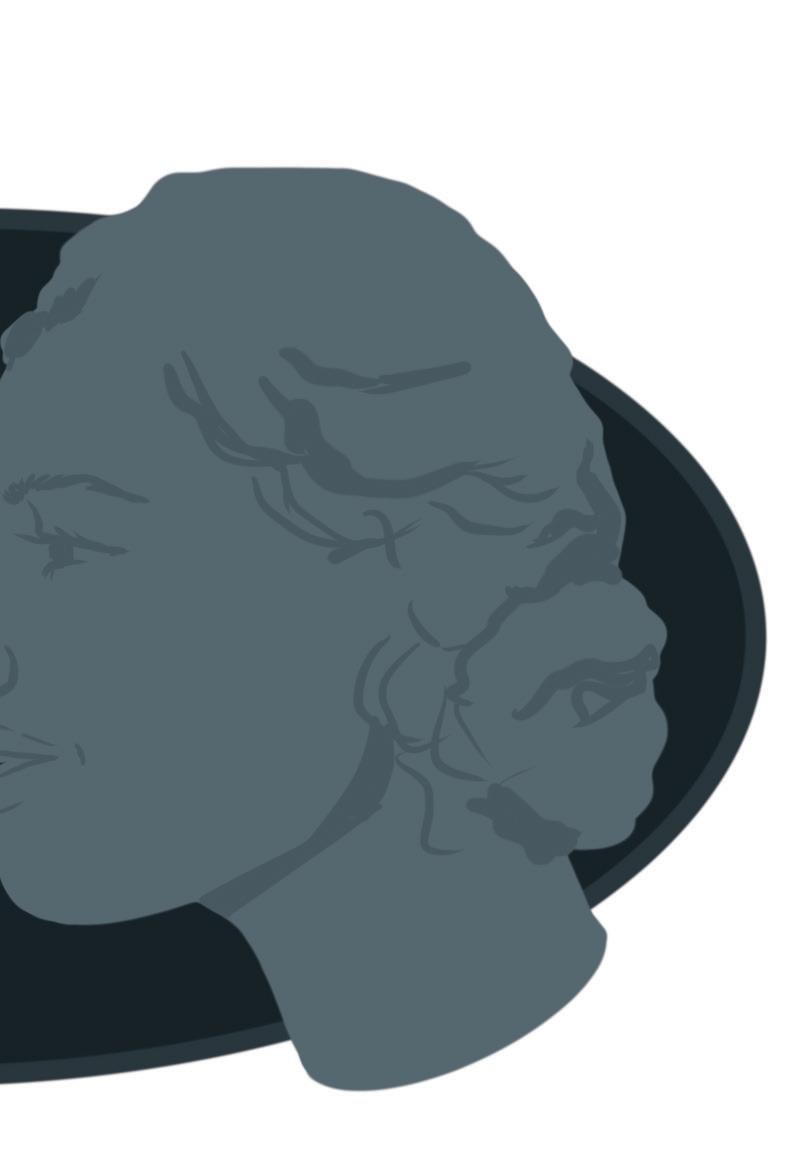








had attended a Black Lives Matter (BLM) protest since the murder of George Floyd, and there has been speculation that the BLM protests may be the single largest movement in American history.
People have called the BLM movement unsuccessful because they don’t feel enough has changed so far, which is not an uncommon occurrence. Protests are often written o as ine ective due to the fact that they don’t get things done “quickly enough.” However, just because it takes time doesn’t necessarily mean it isn’t e ective. e women’s su rage movement lasted 80 years (1840-1920), yet was one of the most successful protests in American history. Black Lives Matter began as a hashtag after the acquittal of George Zimmerman in 2013 following the murder of Trayvon Martin in 2012; however, the BLM movement has only truly been in existence for approximately three years, only 1/26 of the duration of the women’s su rage movement. Change takes time, and a certain amount of patience that our need for instant grati cation can’t seem to comprehend.
Take another example. e 2022 Sri Lankan political crisis is an ongoing political crisis due to the power struggle between Sri Lankan President Gotabaya Rajapaksa and the Parliament. On July 13, 2022, hundreds of thousands of protesters in Sri Lanka’s capital city of Colombo stormed

Rajapaksa’s palace following months of daily protests across the country. Rajapaksa ed to the Maldives and left Prime Minister Ranil Wickremesinghe in charge in his wake. He later resigned, and the protesters demanded that Wickremesinghe step down as well, which he did weeks later.
While some argue that voting is the best way to change policies, it’s not unknown that our political leaders are often in uenced by money, power and personal gain. It’s hard to truly change anything in America via legislation without money and a title. However, protests are inextricably linked to policy. Public protests are manifestations of dissent and an expression of the urgent need to change policy. Protests drive media coverage, and shift public opinion which allows them to successfully catalyze congressional action.
e country’s marches, rallies, boycotts and gatherings in the name of justice must continue if we expect substantive, structural change within this country. It’s time we stop relying on people in power to change things for us, and time we start ghting for change on our own.
GRAPHIC BY CAROLINE KEGG ’24YES,
ARE EFFECTIVE.
Columnists debate the e ectiveness of protests.
Let me start by stating a clear thesis: Protests can be somewhat e ective for raising awareness; however, they are ine ective at causing meaningful policy change, and in some cases, the backlash causes regression on the issue. I am also making a distinction between protests and mass movements, which I will de ne as “an organized e ort by a large number of people, to bring about pervasive changes in existing social, economic, or political institutions, frequently characterized by charismatic leadership. It must also last multiple months and be present in most of the geographic area a ected”. I am not arguing that mass movements, such as the Civil Rights and Anti-Vietnam War movements, are ine ective.
Let us take a look at the two largest protests in recent times: the response to the Dobbs decision overturning Roe v. Wade and the Black Lives Matter protests of 2020 and 2021. While I sympathize with both causes, they are perfect examples of how protesting has become ine ective. One of the most useless protests is one in response to a court decision. e decision has been made, immutable and indi erent to public opinion. Clarence omas’s views on originalism are not going to be changed by some people chanting for a few hours outside the Supreme Court building. Moreover, protests, with the exception of those intended to raise awareness, often happen in response to decisions rather than to in uence them, and public ocials are very reluctant to reverse a decision for fear of losing credibility. Even if you disagree with the Dobbs decision
like me, you have to admit that the ght pro-lifers made was impressive. ey have been ghting for 50 years to slowly shift the Supreme Court to the right, inch by inch, and they didn’t do it with protests, they did it by mainstreaming Originalism and winning elections.
e 2020 BLM protests were in response to the murder of George Floyd and in the immediate aftermath, polling showed public support for the protesters at about 70%. Despite this, it seems that no matter how many people showed up, nothing happened besides a few mostly super cial changes to a dozen or so police departments. Congress failed to pass any legislation, most states did nothing and all that remained was billions of dollars of property damage.
Why is this? Part of the reason that protests aren’t causing change is something I call “the protesters’ paradox”. When a protest is seeking attention from the media, it usually resorts to destruction, which tarnishes its ability to cause change because the opposition can label them as criminals. is was perfectly exempli ed by the Rodney Riots of ‘92, when initially peaceful protests demanding justice for Rodney King and Latasha Harlins became overshadowed by the rioting and looting that killed 63 people and caused over a billion dollars of damages. is is another disadvantage protests su er from, they are often in ltrated by people who seek to exploit the disruption to steal, loot and burn. Another reason is that a lack of a charismatic leader to sell the cause to the public prevents protesters from being able to change average voters’ minds. But the more important factor is that partisan gerrymandering has put the vast ma-
jority of representatives in safe districts, making them unaccountable to protesters. Additionally, as a byproduct of gerrymandering, polarization has made many politicians very ideologically driven and unwilling to compromise. As a result, it is far more e ective to try to convince members of the opposing party to vote for your side by appealing to them on moderate issues and avoiding divisive issues. Lastly, my opponent claims that time will show the BLM and Dobbs protests to be e ective in the long term; however, I counter by saying that neither has a constant enough presence in the public eye to have meaningful e ect. For this I point to the fact that although the Black Lives Matter organization was created in 2013, its roots can be traced to the aftermath of the Rodney Riots, 30 years ago, and they have made very few accomplishments given how long they have been around. It is also important to note that some of the progress claimed by protesters wasn’t their own doing. In recent months, a number of police departments have made policy changes as a result of the demands of their insurers.
As a result of a number of high-payout settlements, the St. Louis Area Insurance Trust demanded that the St. Ann police department cease engaging in high speed chases or forfeit its coverage. After failing to nd another insurer that would take them on, the department was forced to make the change. In essence, money talks a whole lot louder than protesters. If you want change, don’t protest; or at least don’t expect protesting to have any e ect. Instead, you should donate, volunteer for campaigns, vote and most importantly, talk to those you disagree with.

 GRAPHICS BY MALLORY JOHNSON ’24
GRAPHICS BY MALLORY JOHNSON ’24



The rst day of fall, Sept. 22, is a staple for some. Changing of the seasons, orange and red hues and a nice crispness in the air is what some (mostly me) wait for all year. With so many new options, it can be di cult to decide exactly what to do. And so, to commemorate the season and welcome fresh changes, I am here to advise the best things to watch, read, eat and do this fall season.


My go-to “fall” show is Gilmore Girls. A quaint small town, where the show is coincidentally always set in fall or winter, with the two main characters obsessed with coffee, makes for the best show to curl up and watch on a chilly night. e show revolves around the main character, Rory Gilmore, and her mom Lorelai, and their journey through Rory’s life surrounding school and relationships. e show creates a great cozy ambience and is incredibly comforting to watch. Gilmore Girls can be found on Net ix.
Harry Potter is a great suggestion for people of all ages to read as well as to watch. Well-known to most, the Harry Potter series is terri c to re-read; I never get bored of the story or characters. If you haven’t read them, then I highly recommend you do. If you have, my personal favorites are e Prisoner of Azkaban or e Goblet of Fire, if you want to read them again. I always nd myself rereading those ones, particularly during the autumn months. ese, as well as the movies, deal with situations placed in fall and are the most entertaining. While they are long books, they still manage to grab your attention, and are hard to put down.


e Pumpkin Spice Latte, reintroduced by Starbucks on Aug. 30 for its 19th year, perfectly encapsulates fall as a drink. Mixed with cinnamon, nutmeg and clove, and topped with whipped cream and pumpkin pie spices, the Pumpkin Spice Latte is a quintessential beverage. It is available hot, iced or blended at stores throughout the fall season. Similar to the Pumpkin Spice Latte, Starbucks also debuted on August 30 the Apple Crisp Oatmilk Macchiato, which consists of oatmilk and Starbucks blonde espresso. e two drinks, paired with a pumpkin scone, loaf or cream cheese mu n can create the perfect autumn snack.

e Golden Bear Scare has been a tradition of the Upper Arlington community for years. Established in 1977, the Golden Bear Scare is an event at Smith Nature Park where the park becomes haunted and comes alive with ghosts, witches and zombies. Socalled “Scare Rangers” explain the history while leading you through the haunted park, and there are many surprises along the way. It is a great event for people of any age, whether you are going for fun or volunteering.

e Golden Bear Scare will take place from Oct. 17-19, from 6-9 p.m.

Columnist shares her top four autumnal delights.
As the midterm elections approach, politics are beginning to return to the forefront of many people’s minds. However, something feels di erent about this compared to the last few elections. Compared to the 2016, 2018 and 2020 elections, there seems to be a stunning level of apathy, particularly on the left. After four years of ghting former President Trump tooth and nail, Democratic voters are sorely disappointed at how little President Biden has been able to deliver on. Meanwhile, the right has been busy pointing and laughing at Biden’s ga es, but have neglected to propose any vision or plans to voters, hoping that they will gain voters simply by appealing to disa ected voters and culture war issues. is leaves a large number of disa ected moderate voters up for grabs.
In 1989, political scholars Bill Galston and Elaine Kamarck published “ e Politics of Evasion,” a call for reform to the Democratic party by dispelling the myths that prevented them from winning. eir main thesis was that Democrats were in denial over the reasons they kept losing. In the prior 20 years, Democrats had only won one presidential election, Jimmy Carter in 1976. ey stated that “too many Americans have come to see the party as inattentive to their economic interests, indi erent if not hostile to their moral sentiments, and ine ective in defense of their national security.” But many Democrats were either oblivious or in denial to this reality, and instead of changing their image, blamed low voter turnout for their losses. In response, a group of Democrats heeded Galston and Kamarck’s call for change and were called “New Democrats.” e most wellknown New Democrat was Bill Clinton, who appealed to the middle by supporting the working class, being tough on crime, supporting our national interests, balancing the budget and overseeing a booming economy while remaining supportive of government spending and welfare programs. Also important to his electoral success was the fact that he was young, charismatic and from Hope, Arkansas.
In February of this year, Galston and Kamarck published an updated version of their original paper, reiterating their thesis and calling for Democrats to reign in the far left wing of their party and improve outreach to moderates. Despite losing in 2020, Donald Trump increased his share of the popular vote by 1% and gained 8 million votes from 2016. Even more troubling for Democrats was their declin-
ing support across almost every minority group. In particular, Biden’s support from Hispanic voters, who once were considered safely Democratic voters, shrank in seven of nine swing states. is is at least in part due to Democrats being perceived as too liberal on social issues and not doing enough to ght the rise in crime. It isn’t a great look to be calling for (or perceived as supporting) defunding the police while violent crime is hitting 20 year highs.
When they say that “too many Americans have come to see the party as inattentive to their economic interests,” they point to sky-high in ation, caused in part by excessive government spending, and the fact that many people will vote against the party in power when their wallet is being stretched thin. When they say that Democrats are “indi erent if not hostile to their moral sentiments,” they point to Democrats over-zealous embrace of LGBT issues well before a majority of the country is ready for it and perceived support for critical race theory. Democrats being “ine ective in defense of [the country’s] national security” is visible in the disastrous withdrawal from Afghanistan although our assistance to Ukraine has helped to change this perception.
ey also rightly argue that reaching out to swing voters is more important now than ever, with the last six presidential elections having less than 5% margins. Moderation is the key to doing that. Rather than focusing on divisive issues, they should promote their ideas on universal pre-k, public transit, a public healthcare option, infrastructure projects and other things that have wide public support.
Long term, Democrats need to develop a talent pool of candidates that are from working class backgrounds that can resonate with people outside of the cities. ey need to moderate on social issues and more importantly, improve their communications with the public, keeping in mind that many of their individual policy proposals enjoy over 60% public support. In conjunction with more moderate messaging, they should ght the PC culture that is associated with them that is incredibly toxic to a large number of voters.
Columnist argues for Democrats to emulate the New Democrats of the 1990s.Djo, pronounced simply as “Joe,” is the stage name for actor Joe Keery, best known for his role as Steve Harrington in Net ix’s Stranger ings. Djo is Keery’s alternate life, where instead of a famous actor, he is a lesser-known alt-rock singer. Before going solo, Keery was in the Chicago-based rock band, Post Animal, but left the band in 2018 to focus on acting.
His solo debut album, “Twenty Twenty,” was released in 2019. After the release of “Twenty Twenty,” Keery took a three-year break from his social media and music before making a return to announce his new album “DECIDE,” which came out Sept. 16. e four singles released before the album came out were “Change,” “Gloom,” “Figure You Out” and “Half-Life.”
I was unsure what to expect from this album. “Twen ty Twenty” was impressive, with all the qualities of a psy chedelic-rock album: lengthy guitar solos, electric instru mentals and of course, Keery’s crooning vocals. e release of “DECIDE” was one no one saw coming. Keery, in his sudden return to social media, put out a 1980s-inspired “Djo” ad on his Instagram page, and shortly after released his rst single, “Change.”
“DECIDE” is a much di erent sound from “Twenty Twenty.” “Twenty Twenty” seemed to be the rst step in a long line of new age pop music for Keery, and “DECIDE” furthered that claim. But with bolder and funkier sounds, I could clearly tell that Keery took a lot more risks with this record. Using trippy guitars, explosive drums and witty lyr ics, this album reminded me of a lot of the music from the ‘80s. Perhaps Keery took a note from e Talking Heads, or George Michael, but either way, this album was remark ably reminiscent of old sounds while still keeping it fresh.
Opening with the song “Runner” was maybe the best decision that Keery could’ve made. e rst sounds on the album are repeating notes with the same mantra above it: “Love and hate decide/Money grows and dies/People nev er change/But I have to try.” And while this song might be a bit repetitive to some, and it’s certainly not the most lyrical on the album, I argue that it still is a great opener. “Runner” incorporates a lot of the di erent sounds that will be used on the record, as well as introducing the overarch ing theme that Keery portrays: the complexities of human life and how we change and grow. “Runner” also keeps you
on your toes; the beat is simply addicting. My personal favorite songs, and therefore my rec ommendations to listen to are “Gloom,” “Half Life,” “I Want Your Video,” “Fool” and “Figure You Out.” All of these were more on the energetic side, and while I’m not normally an advocate for super up-beat music (my obses sion with Phoebe Bridgers songs will tell you otherwise) I found myself getting bored during the slower songs on this record.
Some songs that fell short for me were “End of Be ginning” and “Climax.” While “End of Beginning” had an interesting message, depicting Keery’s struggles with self-identity and the complexities of growing older, I felt like it didn’t t this incredibly fast-paced album. It had a much slower beat, and while I appreciate Keery doing something di erent, I think it was misplaced. “Climax” had the same problem — after listening to it, I just felt under whelmed. However, there was a plus side to “Climax.” e song featured Keery’s deep bass, and even though it was probably edited 10 times over and autotuned, it was still shocking.
e range procured on this album is simply amazing. From going from this type of bass, to falsetto in “I Want Your Video,” to a pulsing speaking voice in “Fool,” it is hard not to appreciate this type of vocal span. Additionally, of tentimes, Keery’s voice was alone, soley backed by either synth notes or quiet drum beats. Yet he still managed to create an entertaining story as well as just having fun. at’s exactly how I would describe this album — fun. It is in nitely danceable, and I believe that even the most nonmusical person would nd themselves tapping their feet along to Keery’s addicting beats.
Overall, I thoroughly enjoyed this album. While I doubt that I’ll nd myself looking to listen to the full al bum again, there were de nitely some songs that I really enjoyed and have added to my playlists. I would certainly recommend “DECIDE” to others; I think that everyone should experience the album all the way through, at least once. e cohesiveness and energy found in this album is unparalleled, and it was incredibly engaging. e album was overall a di erent type of record than I would normal ly choose, but I had a great time listening to it.
There I was, band uniform on, clarinet tucked under my left arm, smiling from where my poster hangs on the fence.
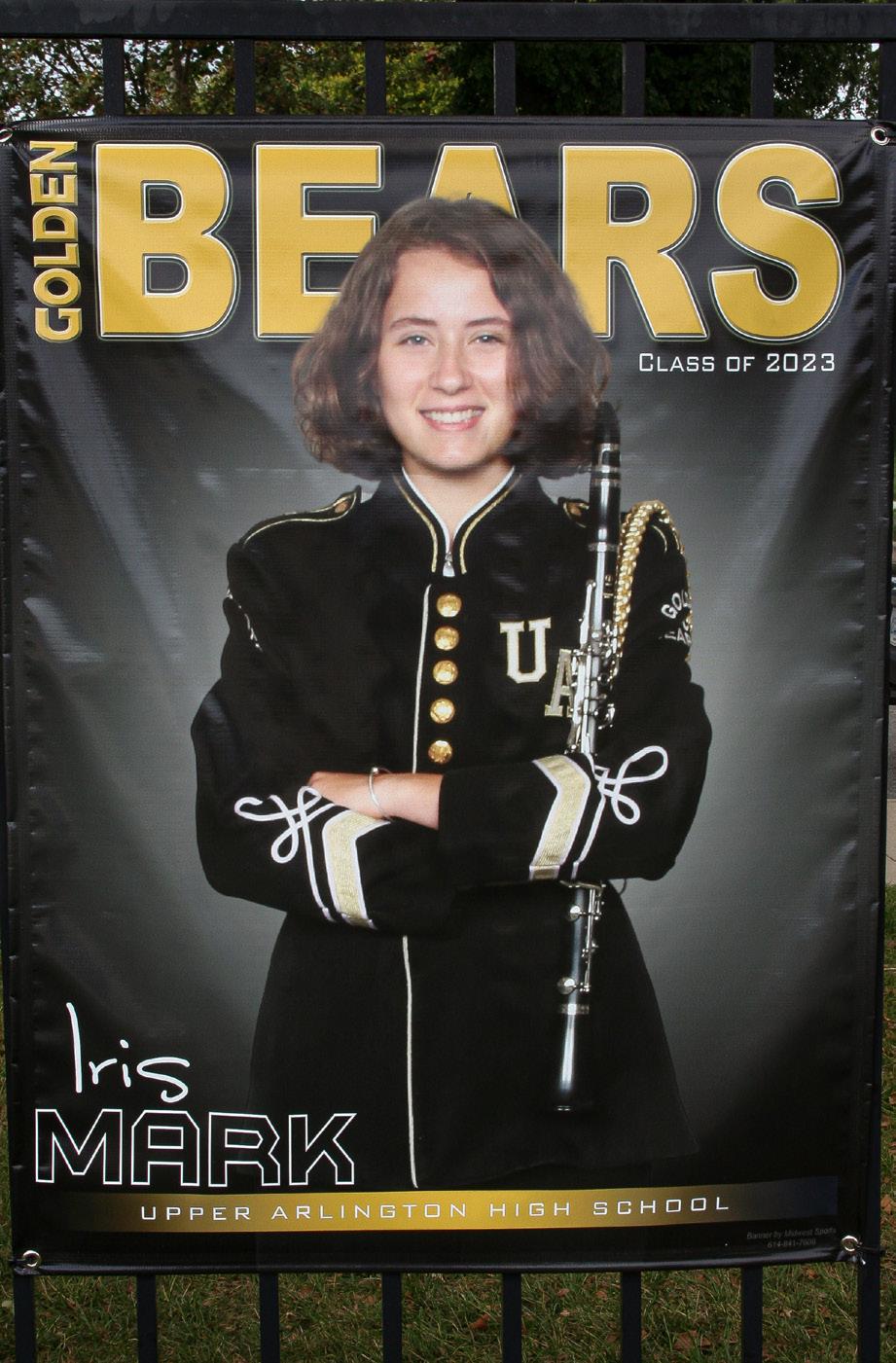
It seemed so wrong.
I know I’m not alone when I say senior year has come fast. But it makes sense, in a way: our freshman year was cut short by the pandem ic, sophomore year was just weird and junior year was one foot in the “normal,” one foot still lingering in COVID-era madness. By the time senior year came around, we’d only had one cumulative year of high school, and come May, it’s done. We’re gone.
Am I excited about this? May be. Am I saddened perhaps, by the loss of what some recall in fondness “the good ol’ days,” saturated in a golden syrup-like nostalgia?
Not really, I can’t wait to leave. But it doesn’t mean I don’t feel apprehensive.
Part of the reason it feels wrong to be a senior is the fact that I don’t feel ready. I don’t feel put togeth er and polished enough to present myself to the world. K-12 seemed like one of those long desert roads, stretching into oblivion under a dry and predictable sky. Now the path of structured, government mandated education has run out, and I don’t think I’ve learned how to function without training wheels.
Even though college still has some form of a safety net compared to adult life, I will still be required to make decisions for myself. I’m es pecially concerned about the in-be tween, every day decisions. When
should I do my laundry, what should I plan for meals this week, when will I have time to go to the post o ce, choices that I’ve never had to make before, that I’ve never had to practice doing for myself. Heaven forbid I have to make my own appointments and talk to someone over the phone. is independence and freedom, so sought after through my childhood, is about to be handed to me, tied with a ribbon and served on a platter of adulting. How can I trust my own discernment enough to make the right choices?
High school is one of many drafts of a piece that might never be nished. I don’t like the cliche about “stepping into the real world” because high school, as super cial as it may seem, is still real life. We’re still learning, albe it in a sheltered environ ment, but this learning isn’t any di erent from the learning we should be doing our whole lives. We should always strive to think critically — the fate of society depends on it — and to remain childlike in curiosity.
Ready or not, the class of ’23 is going to go our separate ways. I won’t start spewing cheesy lines about al ways remembering my classmates, or cher ishing these “carefree days.” Honestly I think the only thing the “gold
and black” will bring me back to is the current state of our declining bee population.
I realize now that you don’t have to be ready, or polished, or put to gether or re ned enough in the res of public education in order to go out into the world and make things happen. Former senior president Na than Varda put it best last year when he called upon his classmates to not take the side of apathy, but to believe that change can be made by young people. I’ll only add one more thing to that: positive change is not guar anteed, and does not come to those who do not actively pursue it.

Columnist does not nd the Weenies of Weenie Wonder very wonderful.











 BY ALI ABUBAKR ’24
BY ALI ABUBAKR ’24
If you want some mediocre glizzy, Weenie Wonder is the place for you. Located in the newly bustling area of Bridge Park, near an abundance of shops and arcades, Weenie Wonder could be a nice place to eat while hanging out with friends.
e restaurant itself is deceivingly large inside, with large orange circular booths lining the walls, outside dining and a Chipotle-esque line where they make the food in front of you. It’s also located basically within the bowling alley Pins, and there are two large doors in the back that lead to the bowling alley and arcade on both sides.
I was initially attracted to Weenie Wonder because of the name — it’s a funny name. But what’s really funny is that you would think that in a place where the word “Weenie” is plastered in huge orange letters above the door, the best thing in the meal would be the hot dog. It wasn’t. I originally ordered the Wonder Coney that came with a side of Jojos, mac and cheese and a vanilla milkshake. Overall healthy meal, I know.
Jojos are seasoned potato wedges which are pretty good and crispy, the mac and cheese is wonderfully creamy and the vanilla milkshake is blended right in front of you from quality ice cream, topped with whipped cream and a cherry. So far, so good. It only gets worse from here. e Wonder Coney came topped with cheddar, onion, mustard and ketchup, and on top of all of this, Coney sauce. e slogan for the restaurant is “Keep Your Mouth Happy,” but my mouth was anything but when
I tasted the Coney sauce. If you don’t know what Coney sauce is, it’s a mix of ground beef, tomato sauce and chili powder. But I don’t think it should even qualify as a sauce because it was so chunky and overwhelming. Coney Condiment is a better name. e condiment took over the whole hot dog and it was all I tasted, and it certainly didn’t taste that good. I tried to wipe o the sauce but even its residue was enough for me to be disappointed with the whole weenie.
But I didn’t think it was fair just to try one dog and swear o the whole restaurant. So I ordered another. I ordered the one that I thought was the most di erent from the Wonder Coney, the Wingdinger. If there’s anything good about Weenie Wonder, it’s the names. At any rate, the Wingdinger comes with bu alo sauce, lettuce, celery, cheddar and blue cheese. e portions of each topping was much better than the last weenie, and there was a healthy blend of greens, sauces and cheeses that left an almost tangy taste in your mouth.

It wasn’t bad, but it was while eating this weenie that I realized: these dogs have too many toppings. A good hot dog should be minimalistic. ink of backyard barbeques where the hot dogs come with ketchup, mustard and maybe some cheese at most. at’s it. And those hot dogs are marvelous. Now I know that it wouldn’t be practical for a restaurant to sell almost plain hot dogs, but this overcompensating in toppings and a horrible bathroom trip afterwards are what makes Weenie Wonder the rst restaurant ever to be Not Ali Approved.
Weenie Wonder is located on 6562 Riverside Dr.
Weenie Wonder serves hot dogs, potato wedges, milkshakes and more.


Being kind to others is something we all can do a little more.
BY EDITORIAL BOARDStarting your day with kind ness is priceless; it costs you nothing and is valuable to the person it goes toward. Starting with hello isn’t necessarily about the literal act of saying hello, but more the at titude of being altruistic. We should actively make an e ort to speak to the person sitting next to us, ask peo ple what they did over the weekend, what they are doing after school, or if they understand what is being taught in class. Don’t do it expecting it to be reciprocated so you can brag about what you did; do it because talking with new people is genuinely rewarding, and you will learn about people and things you have never heard of before. It is also true that everyone likes to talk about them
selves, even the most quiet kid has an accomplishment or something else they have been wanting someone to ask about. Given the large size of our school, we can assure you that there are hundreds of people in your grade that you know nothing about beyond their name. When your teacher n ishes lecturing, rather than pulling out your phone, strike up a conver sation with somebody new. We chal lenge you to do this in each of your classes, use the minute or two at the beginning and end of each class and get to know someone who otherwise would have been in your peripheral vision as you stared at your phone.
Kindness isn’t only bene cial to the person who you are giving it to; it is bene cial to you, too. It makes
you feel good to know that you sin gle-handedly improved someone’s day. You will know that at the end of the day, you can say that you did at least one thing to better the world you inhabit.
All of this may sound high-minded, lofty and idealistic, but it is truly easy and simple. No body expects you to nd a cure to all of our problems, but doing your part is something we all can and should do. So stand in a doorway for an ex tra second or two to hold the door, or if someone does it for you, be sure to thank them. Say hello to people in the hallways, ask people how they are doing, and please, please don’t cut people o in the student parking lots — just don’t.
EDITORIAL PHOTO BY EDITH LEBLANC ’23
